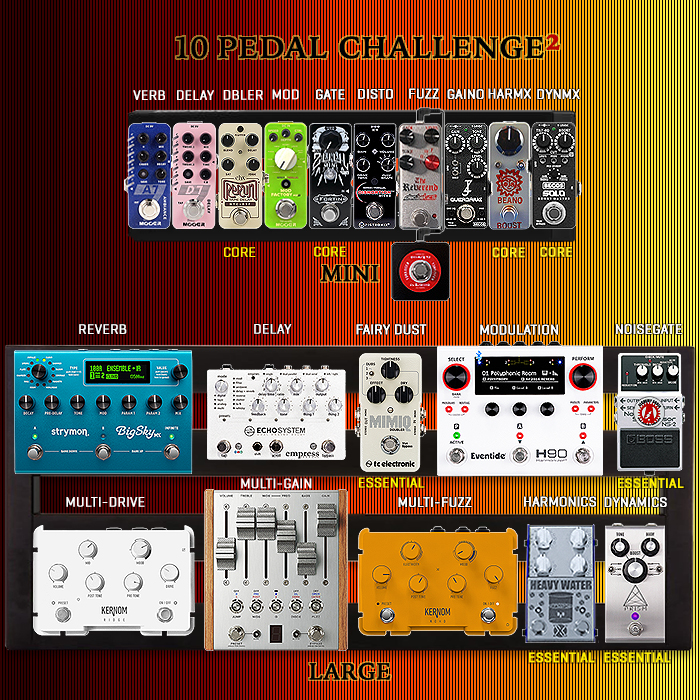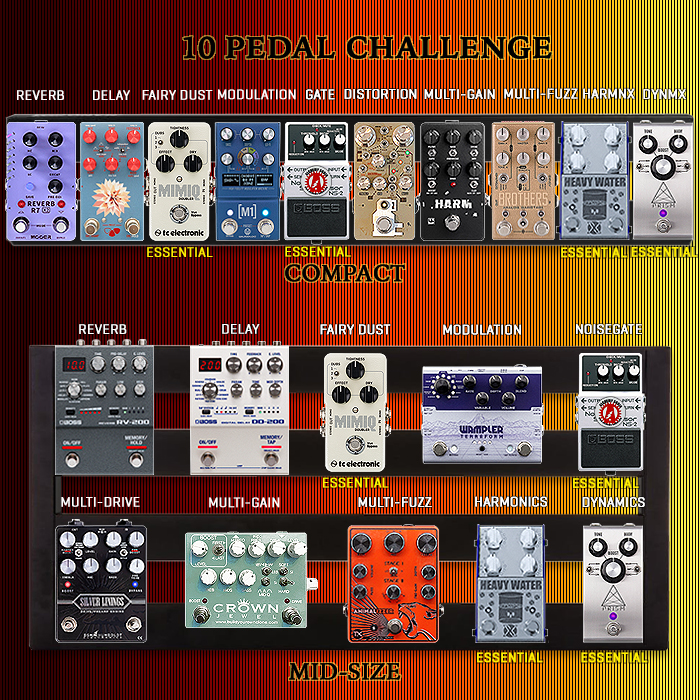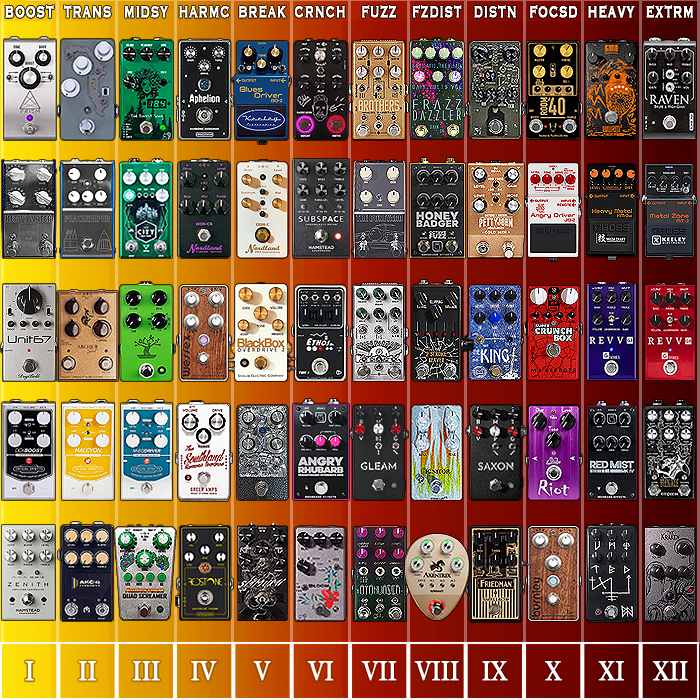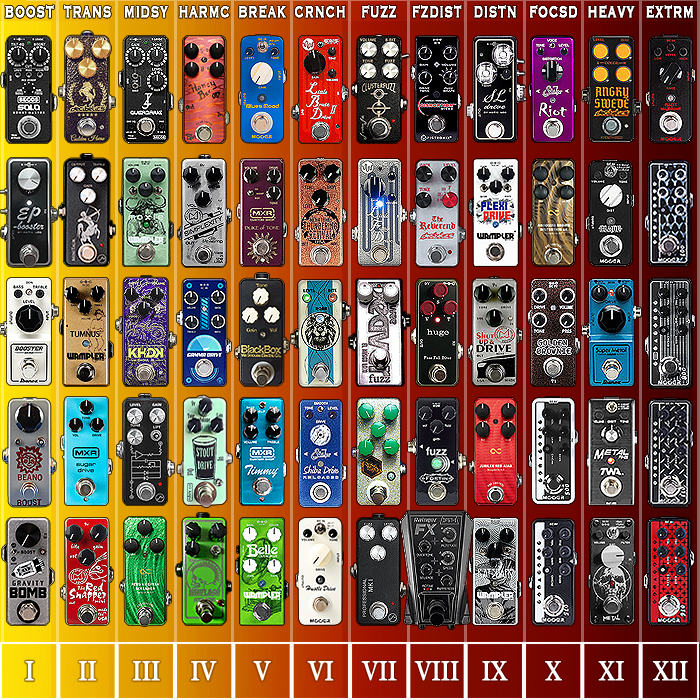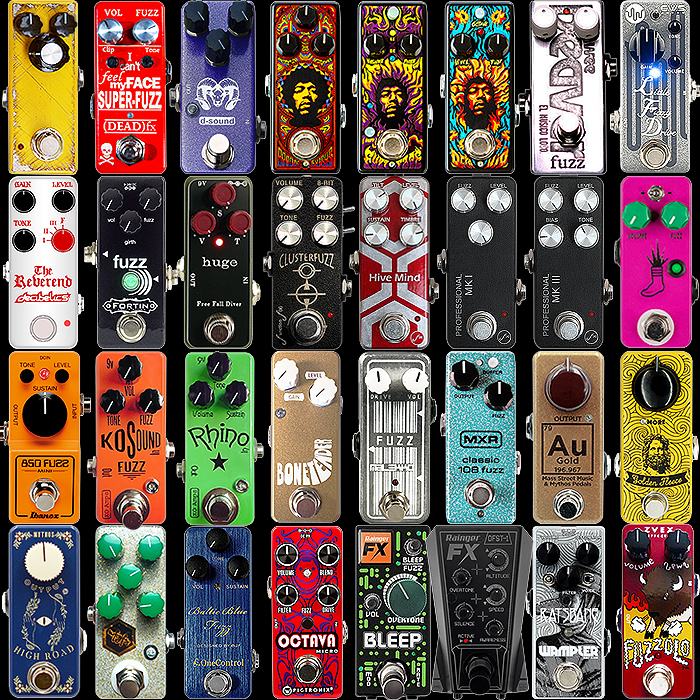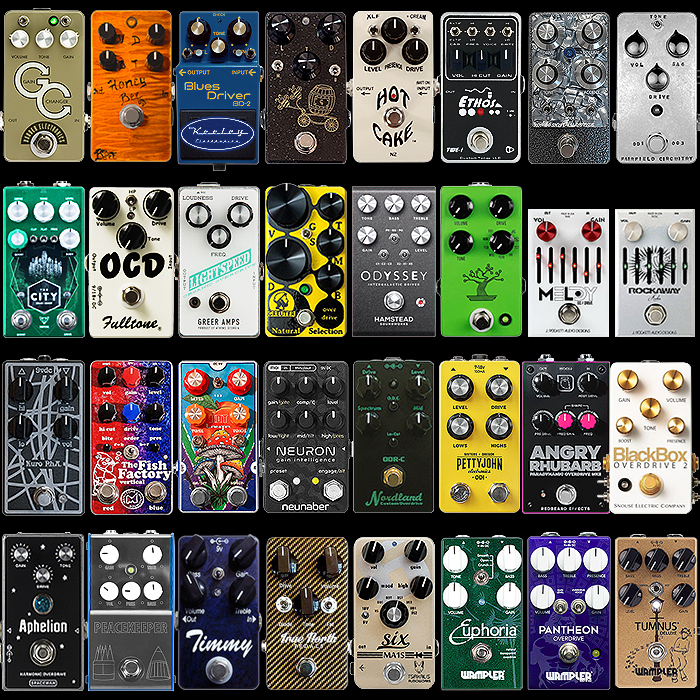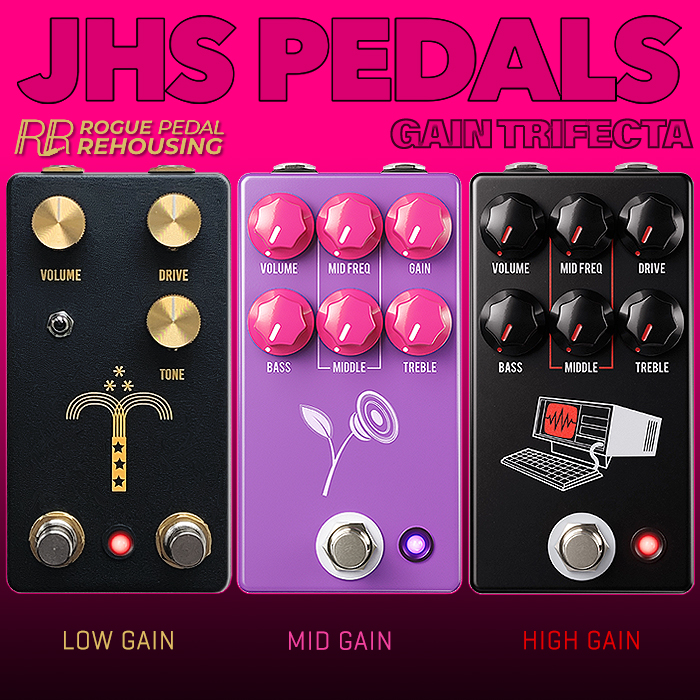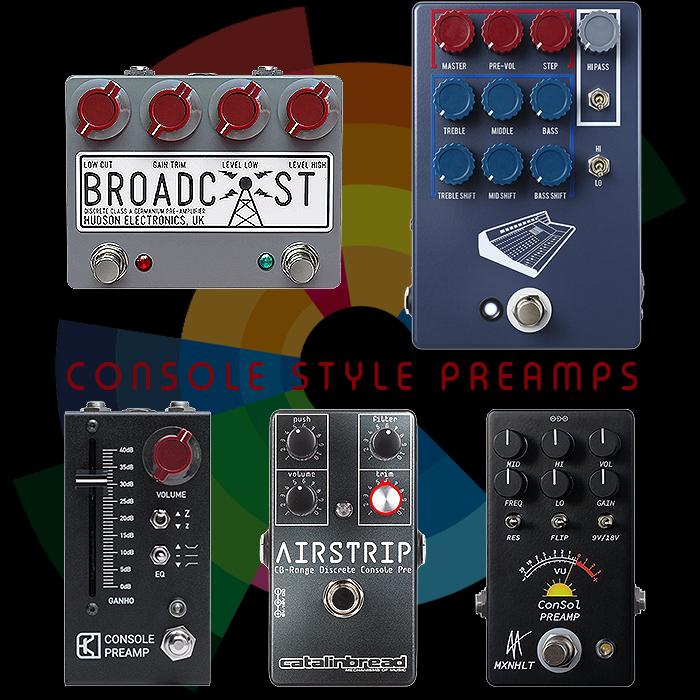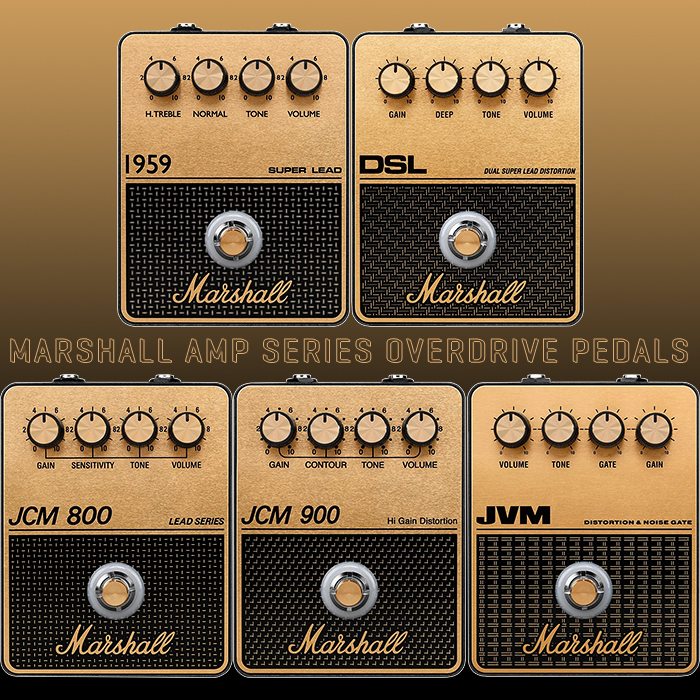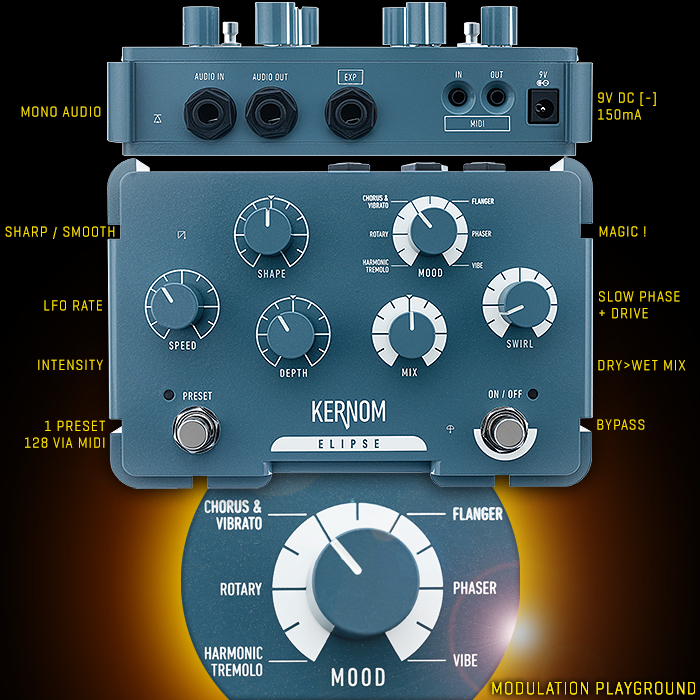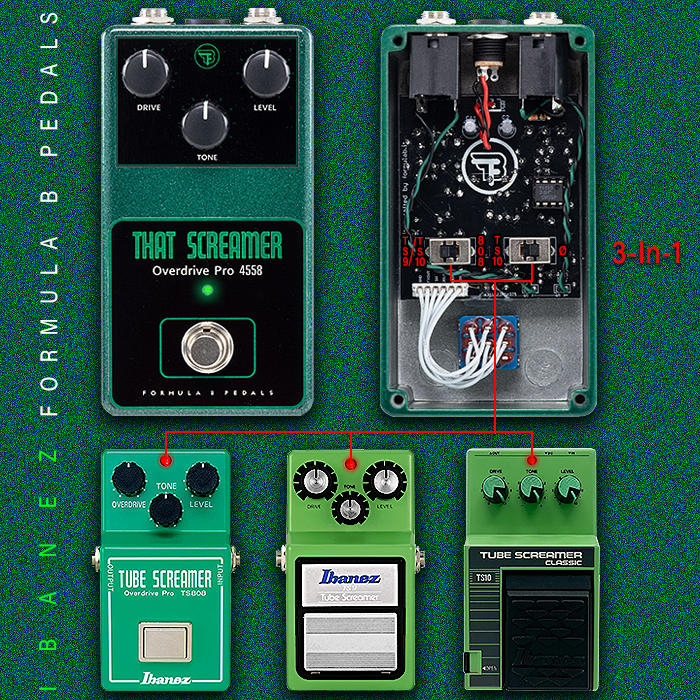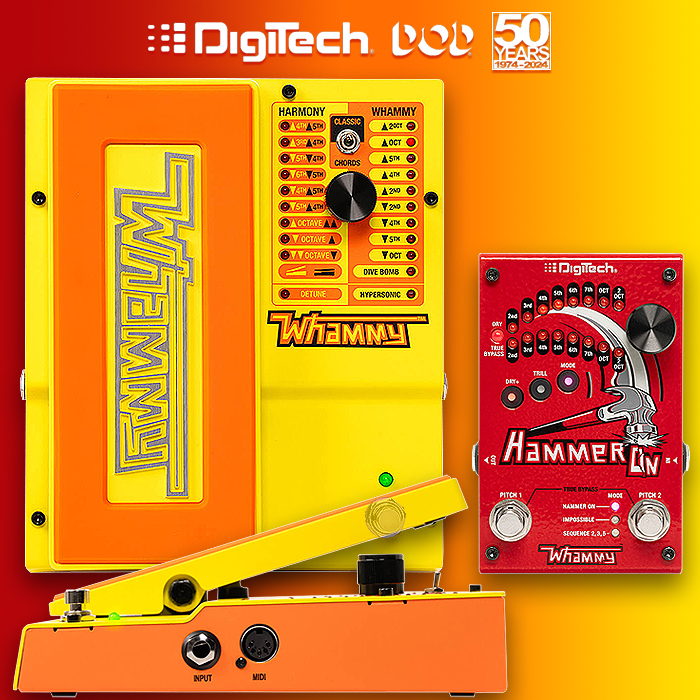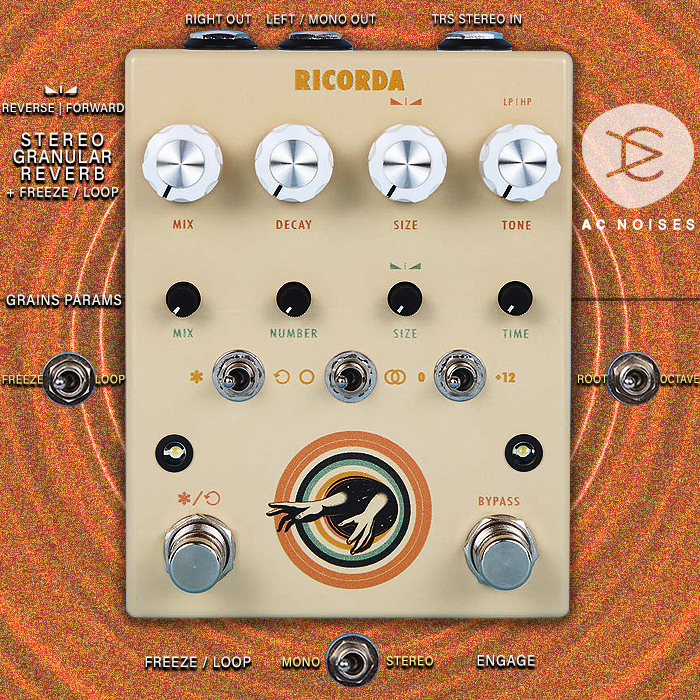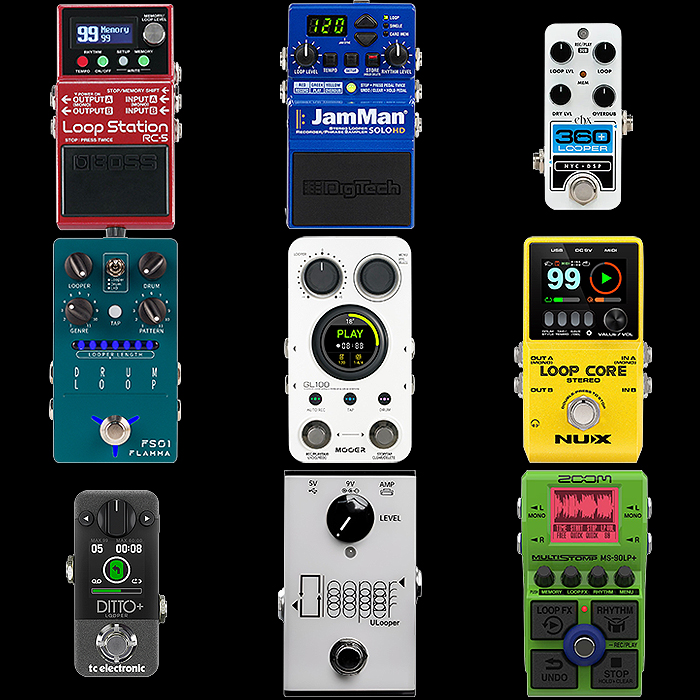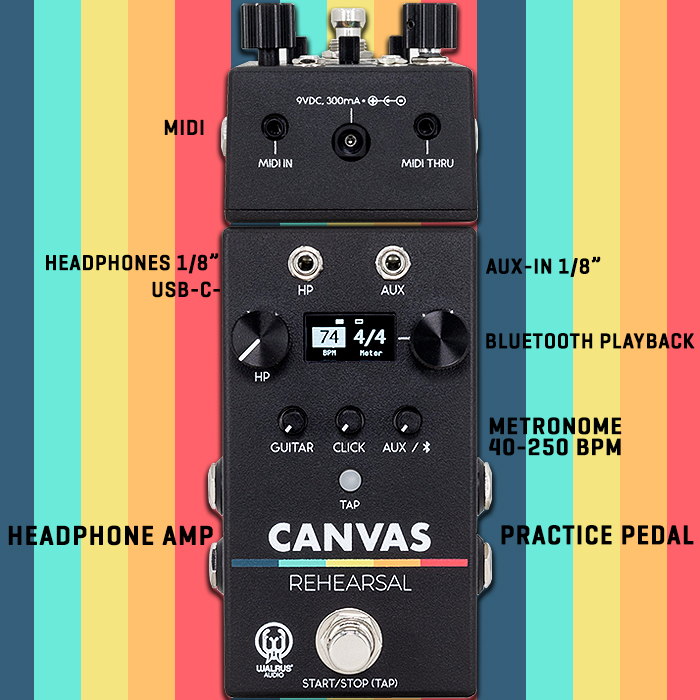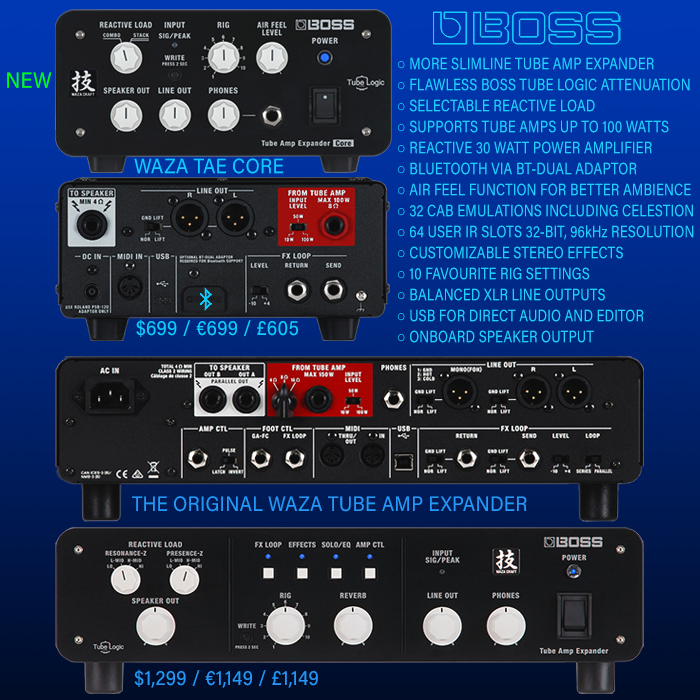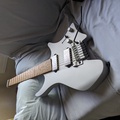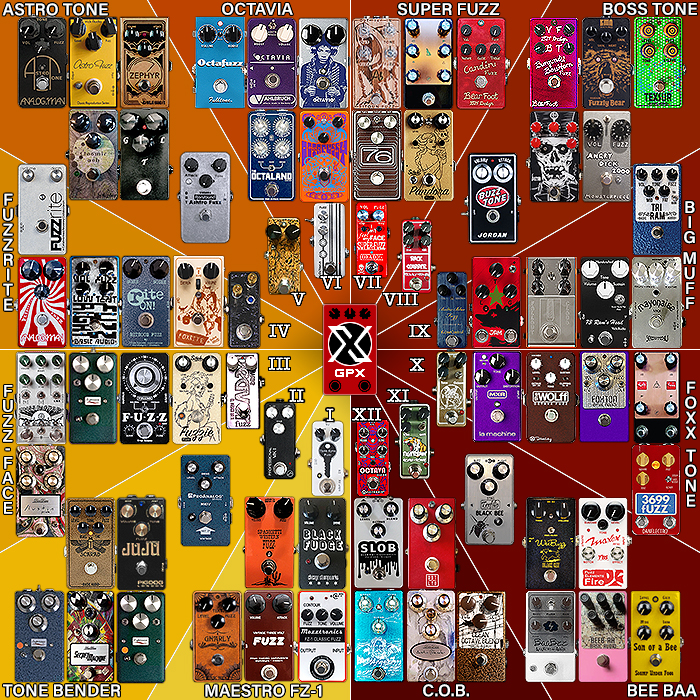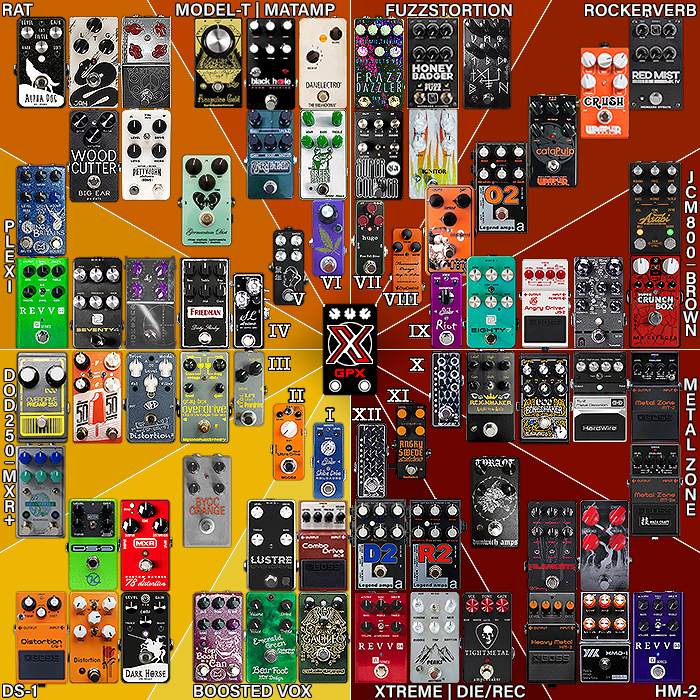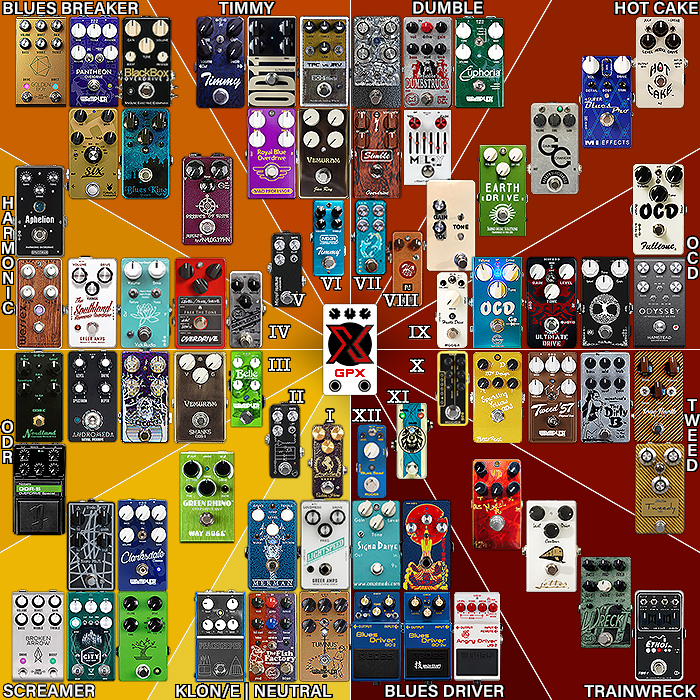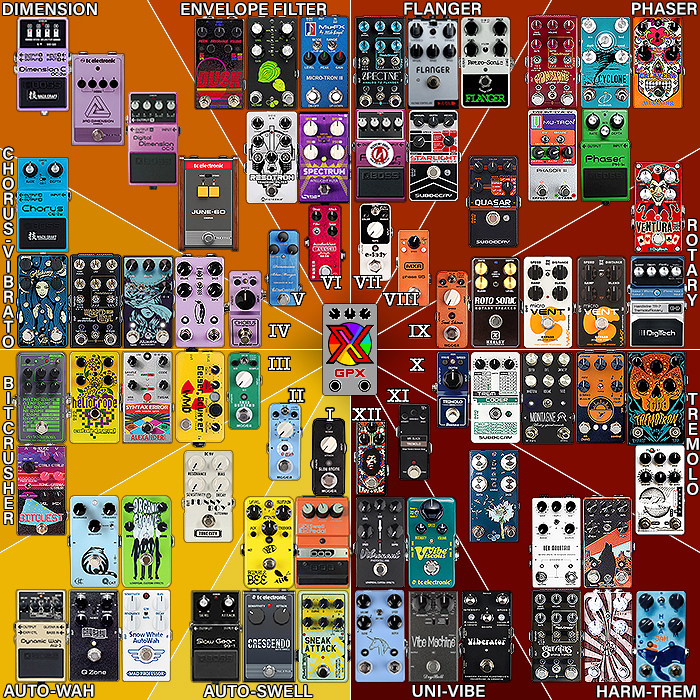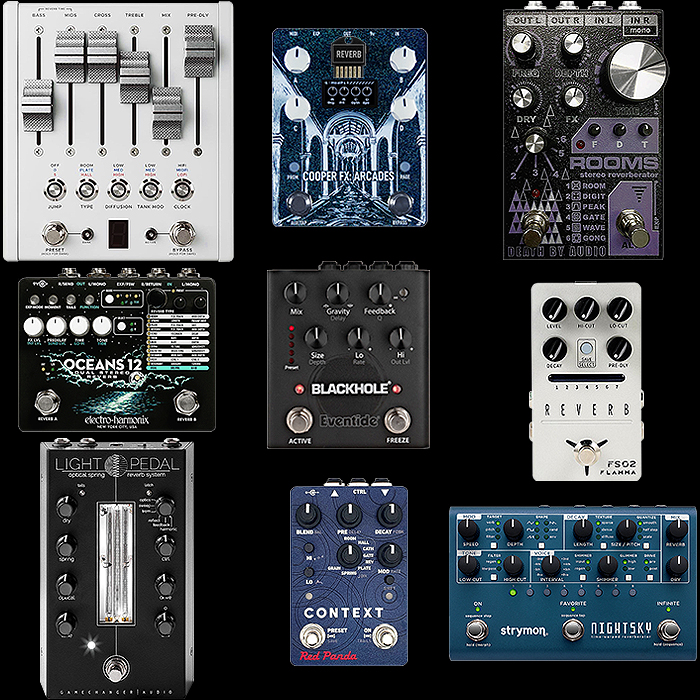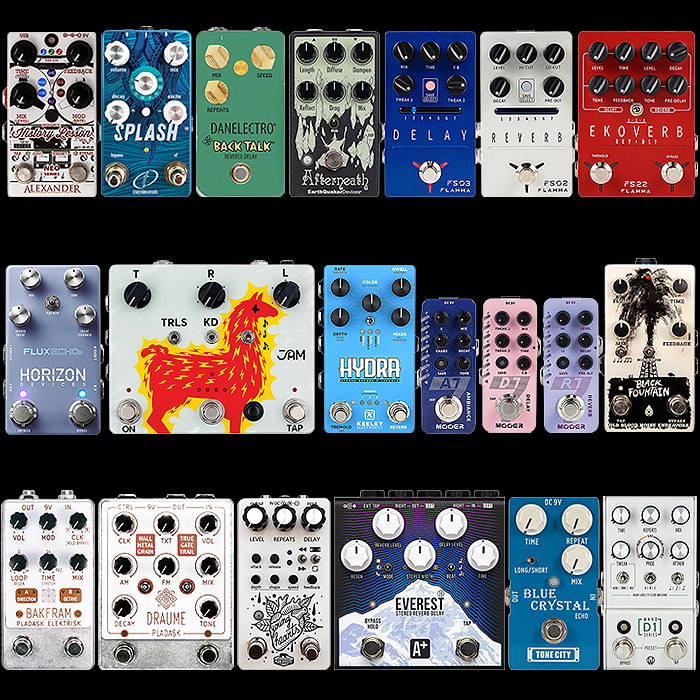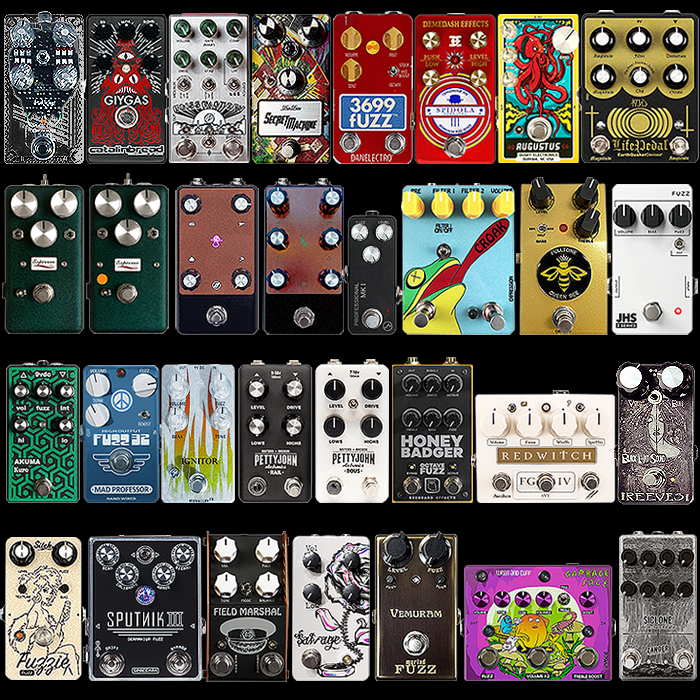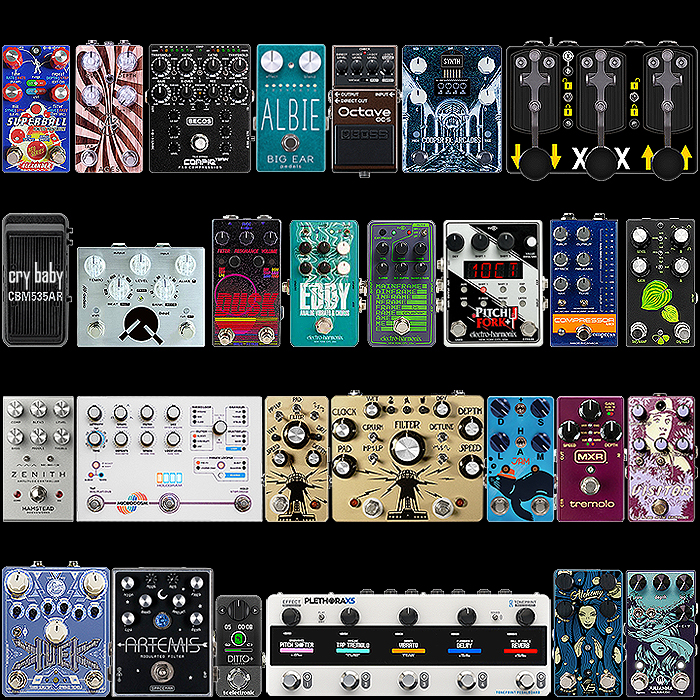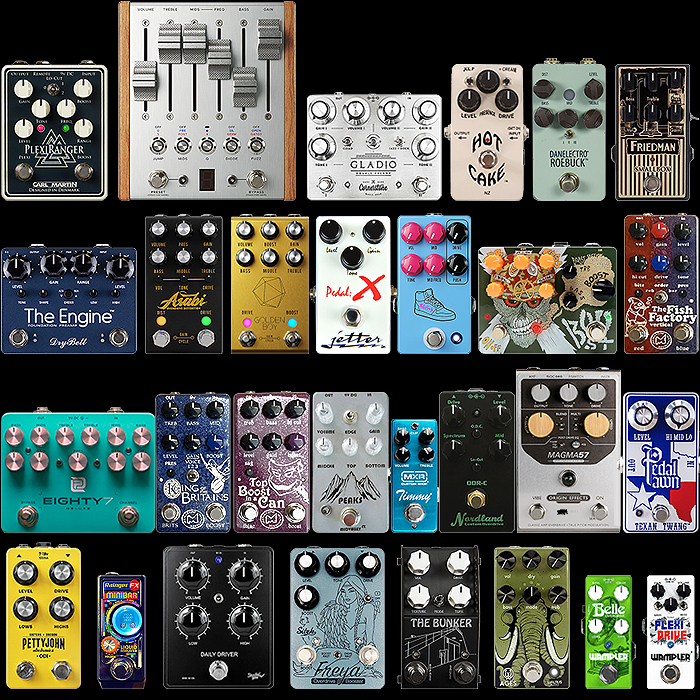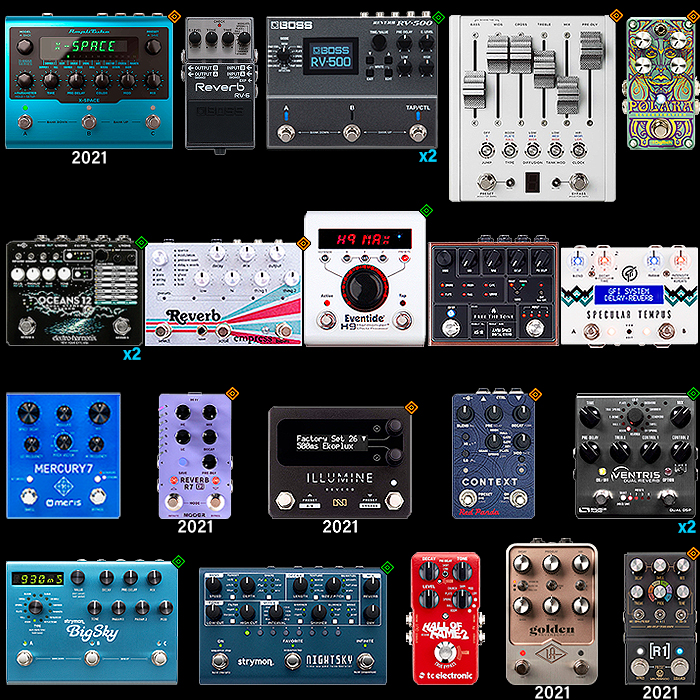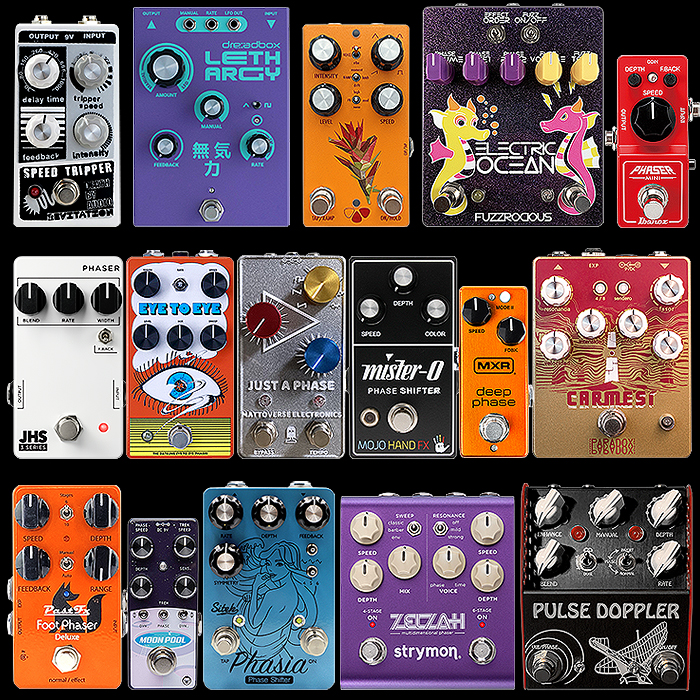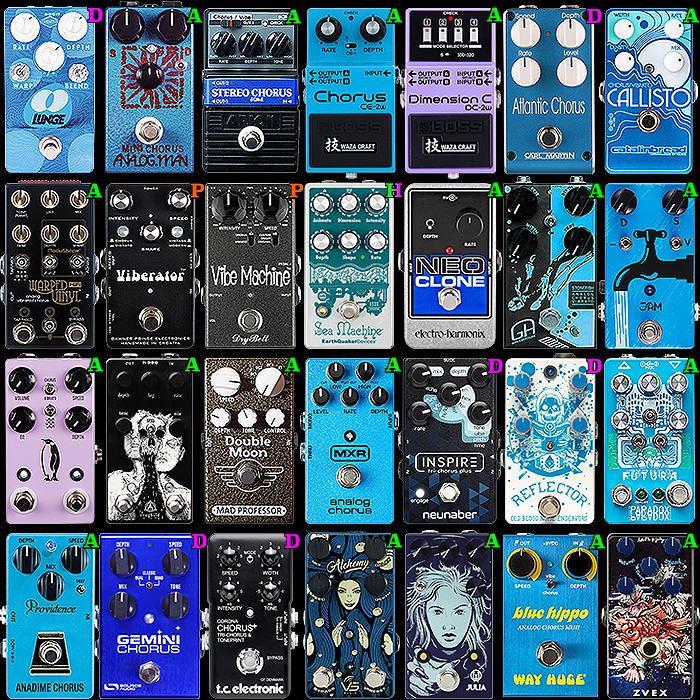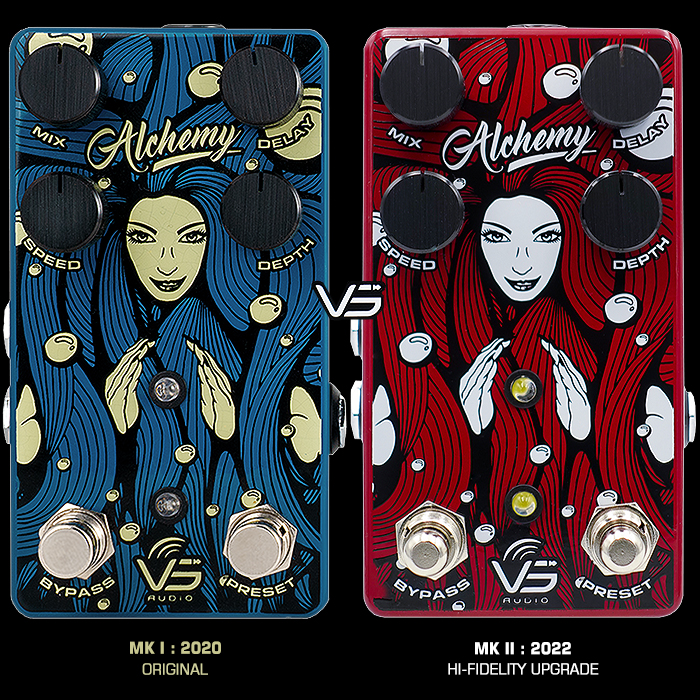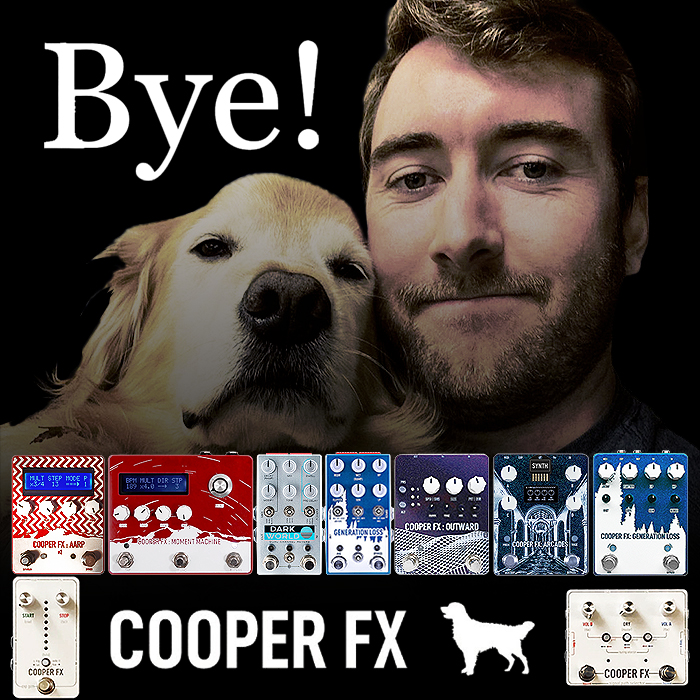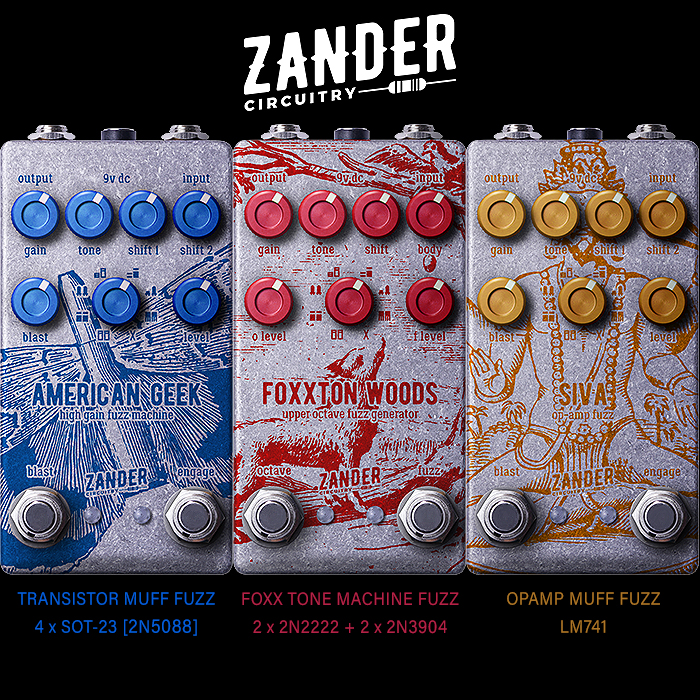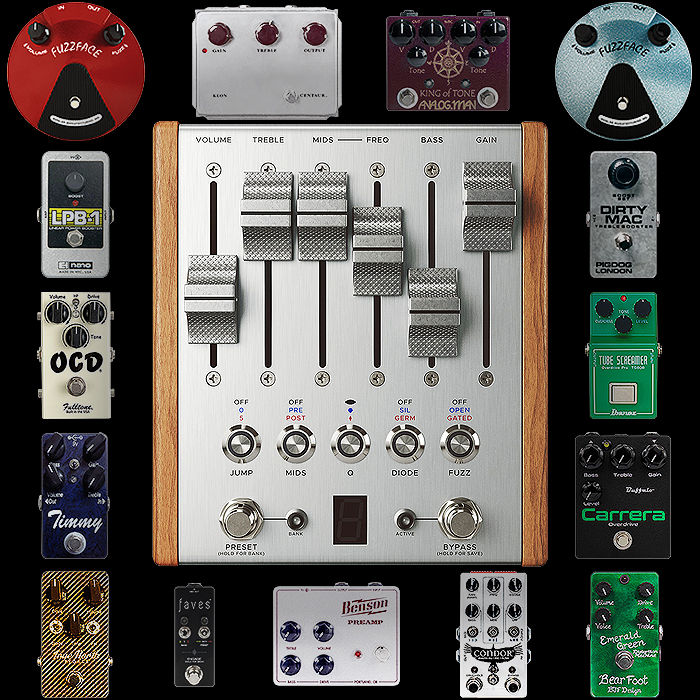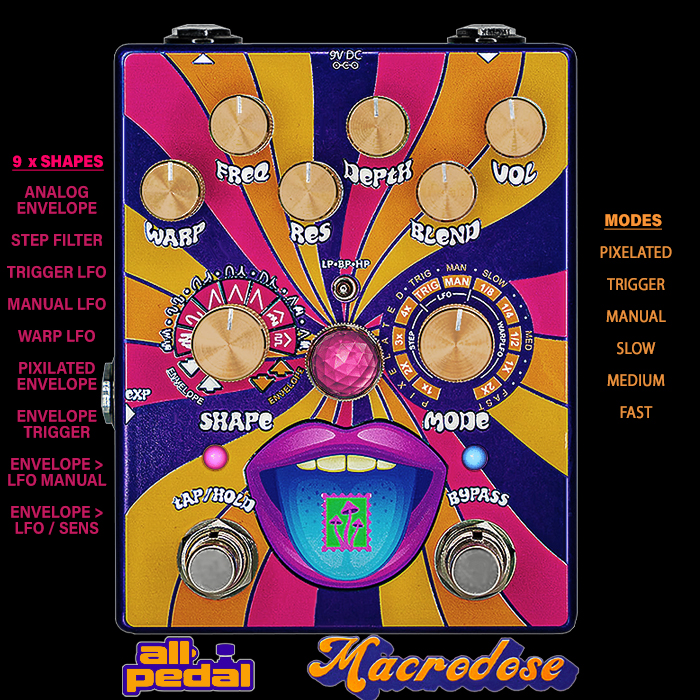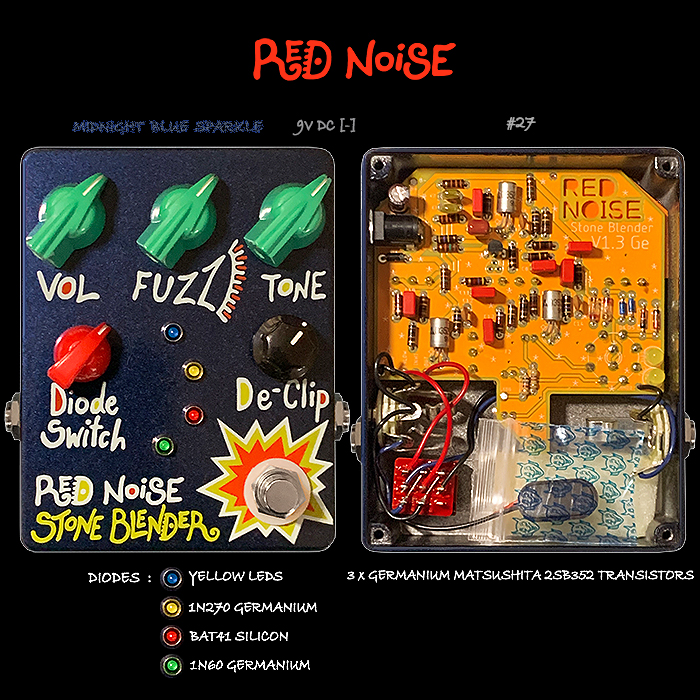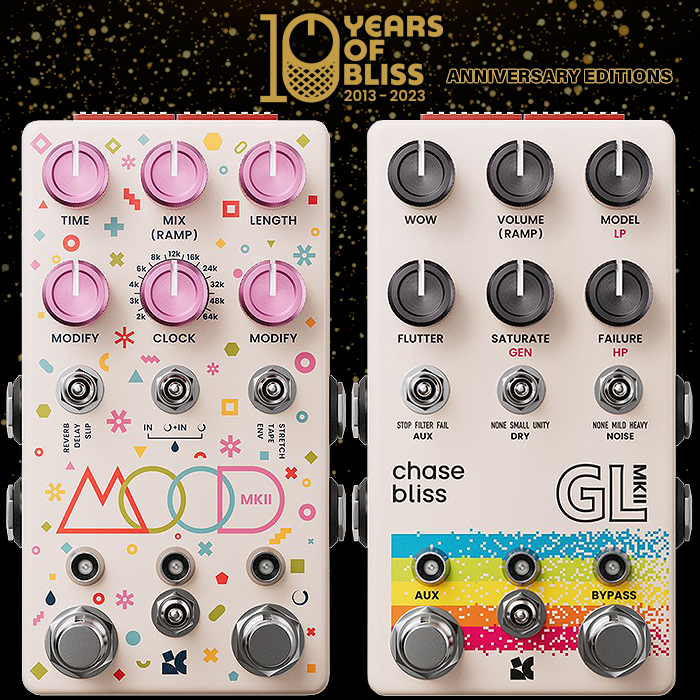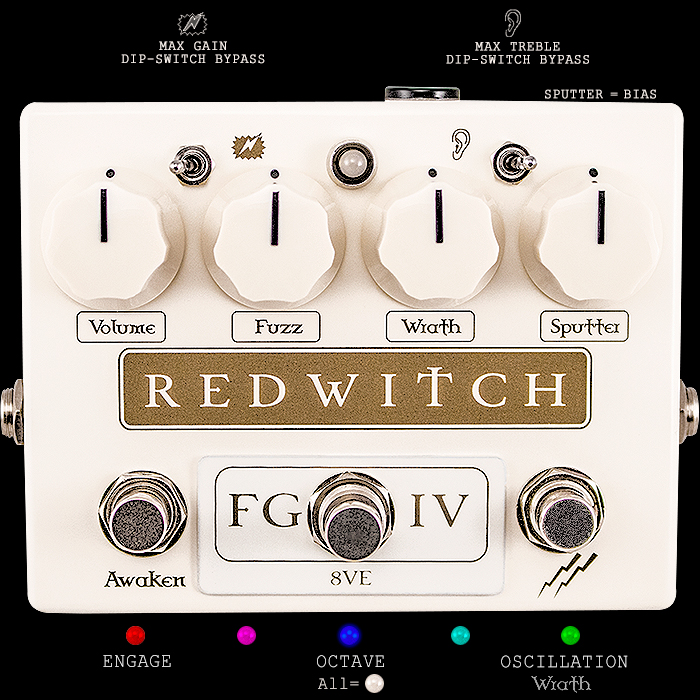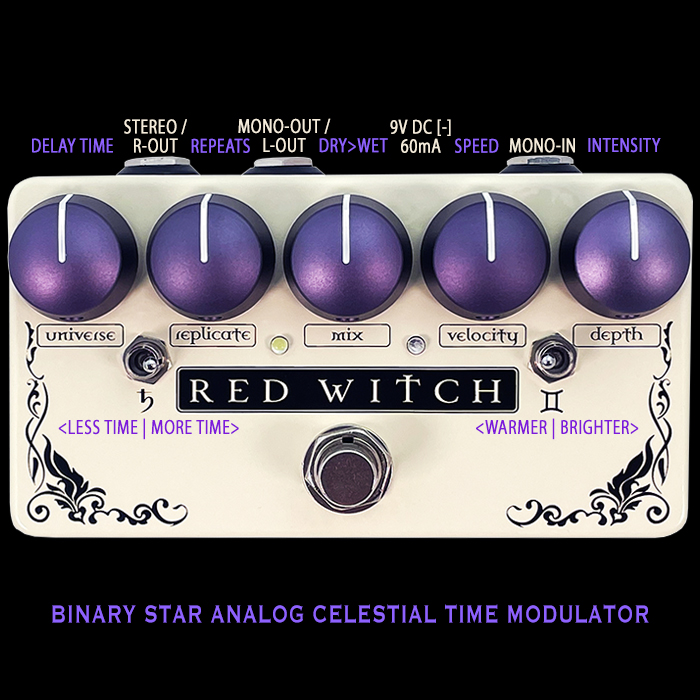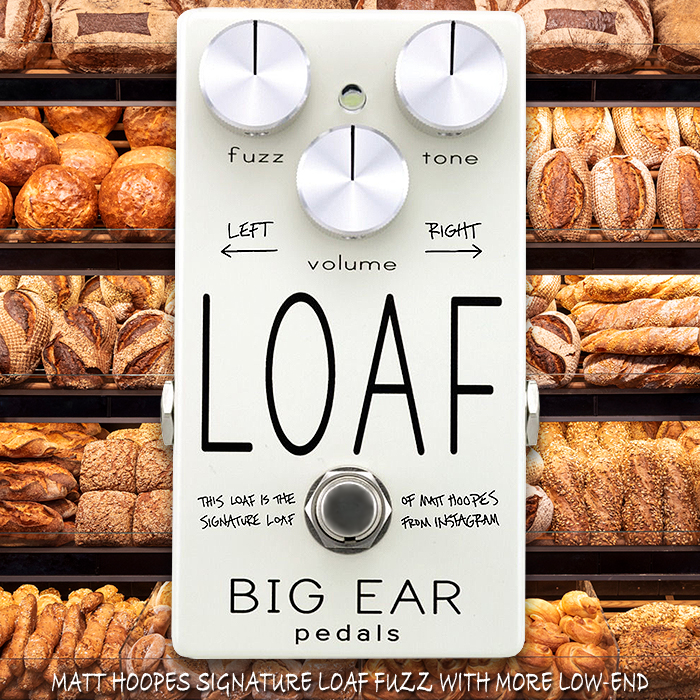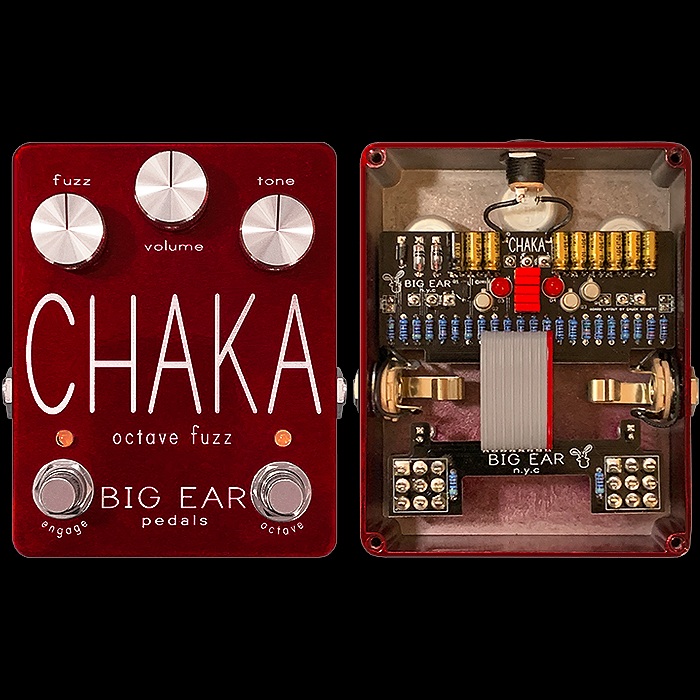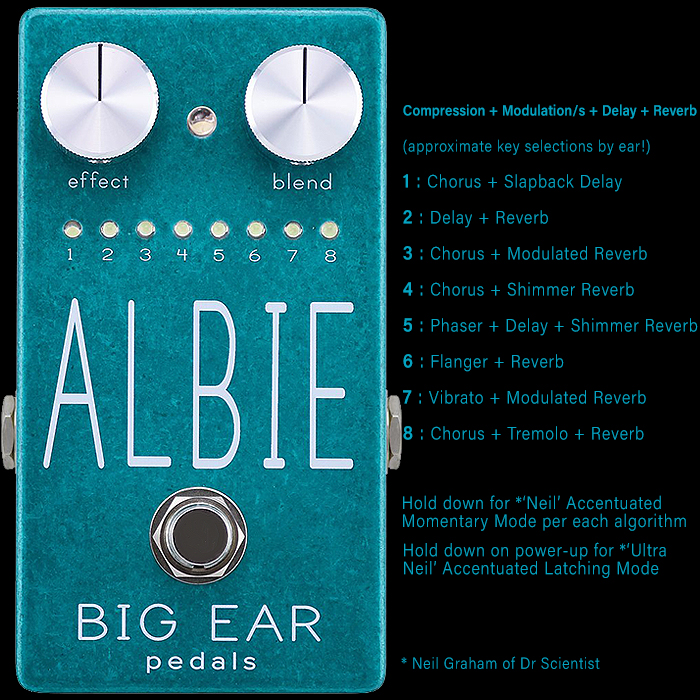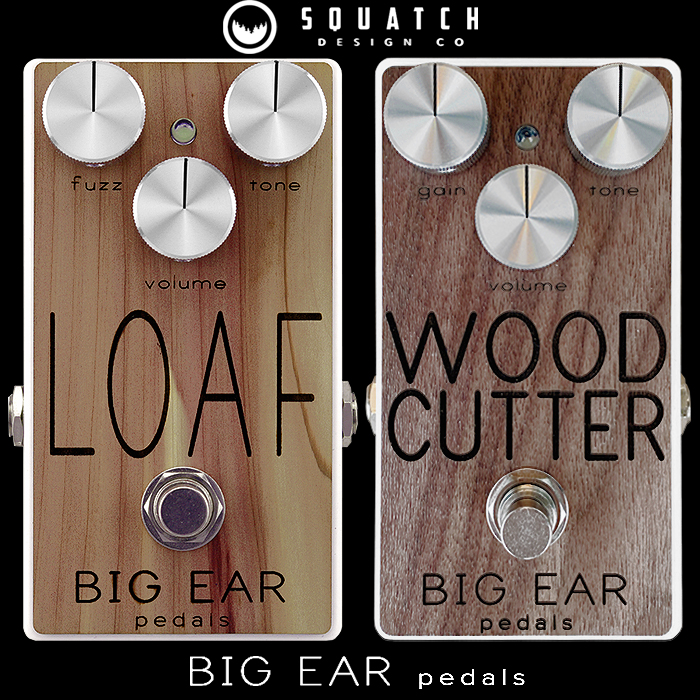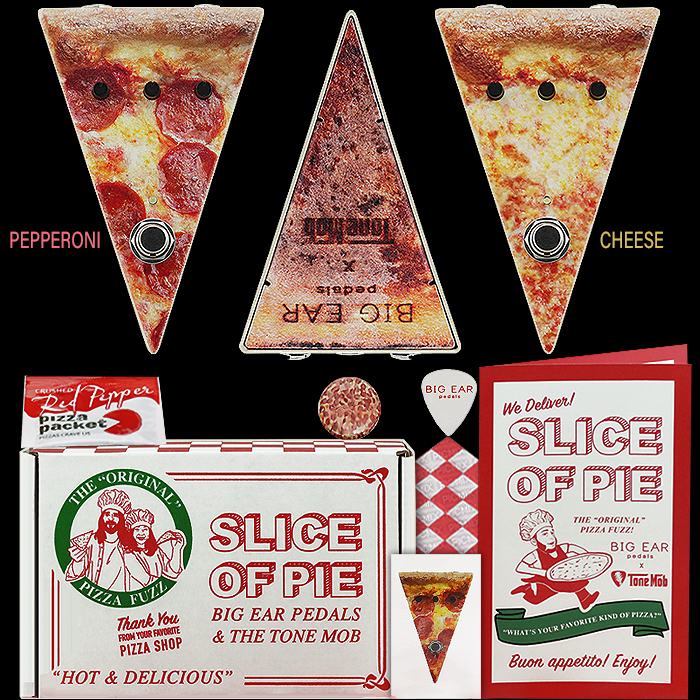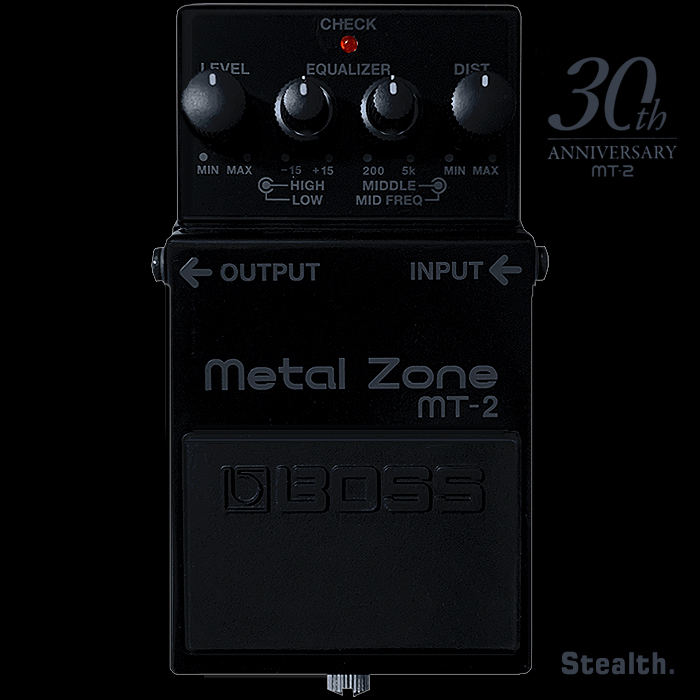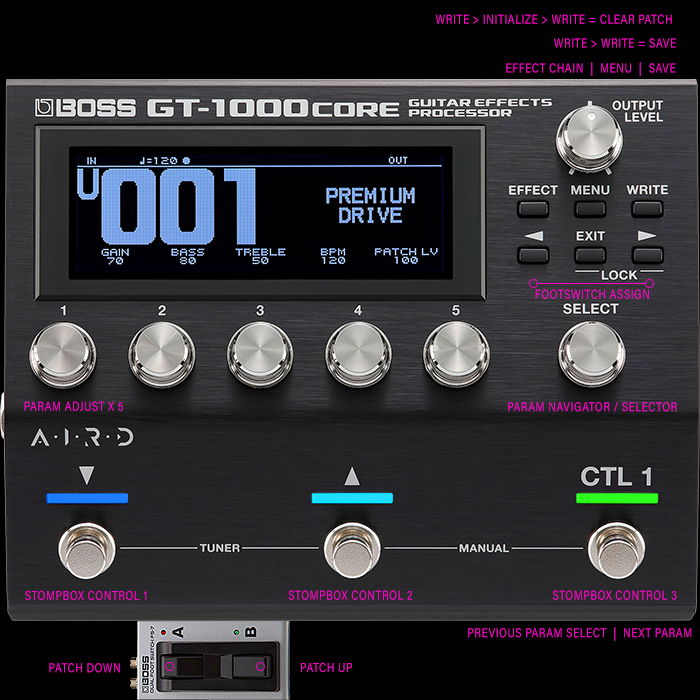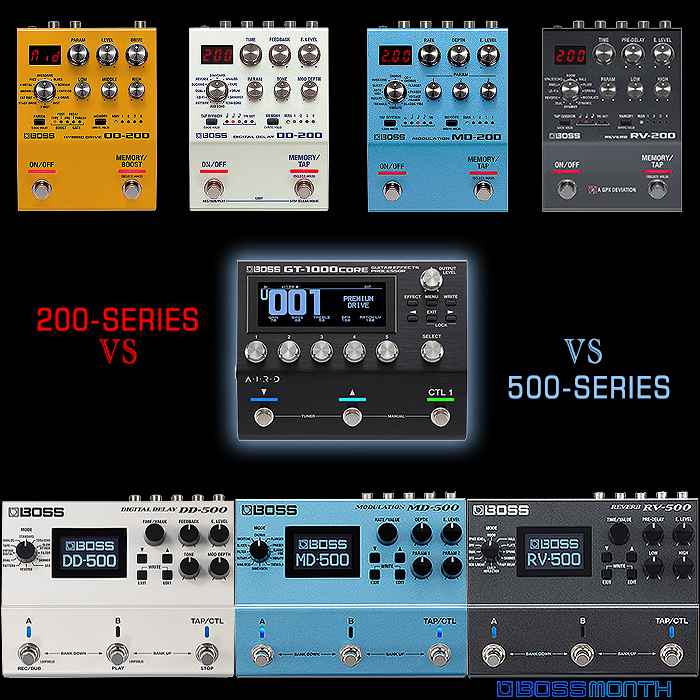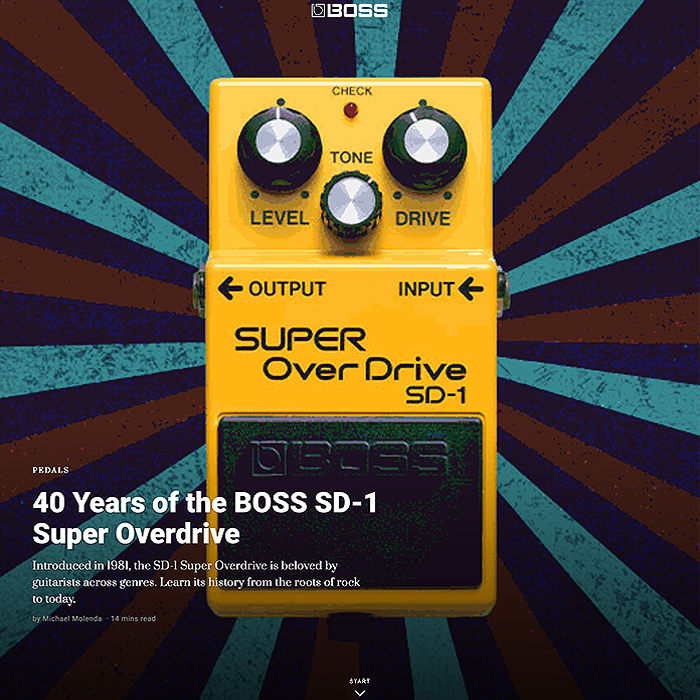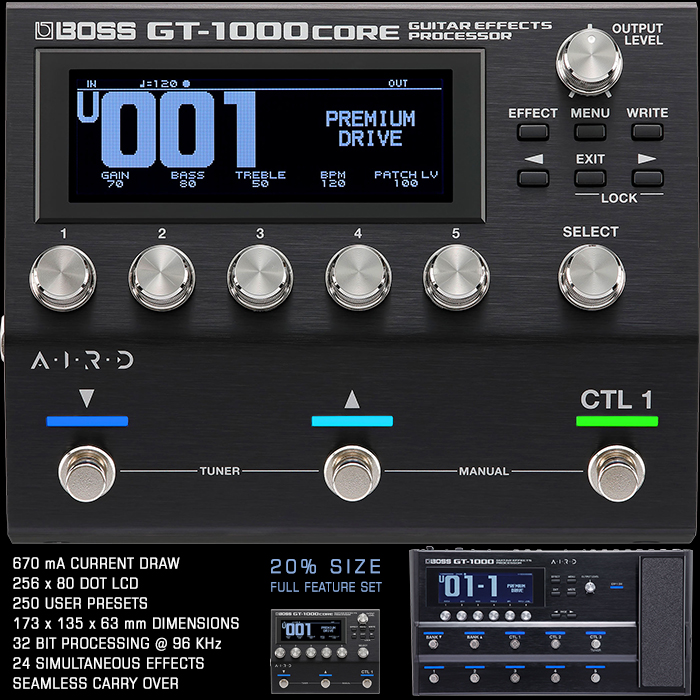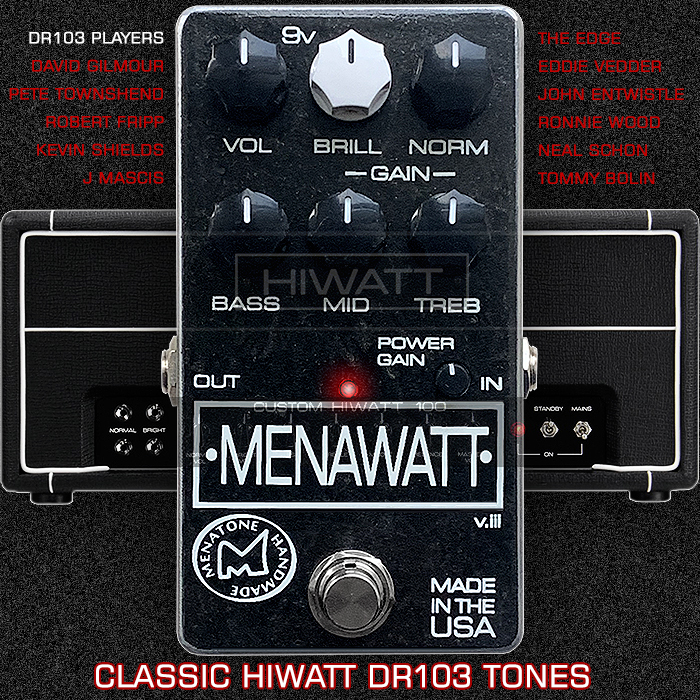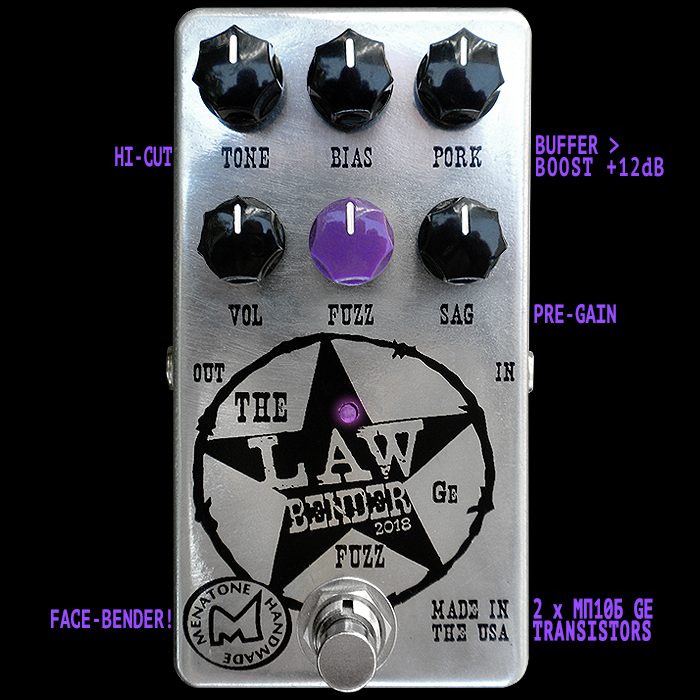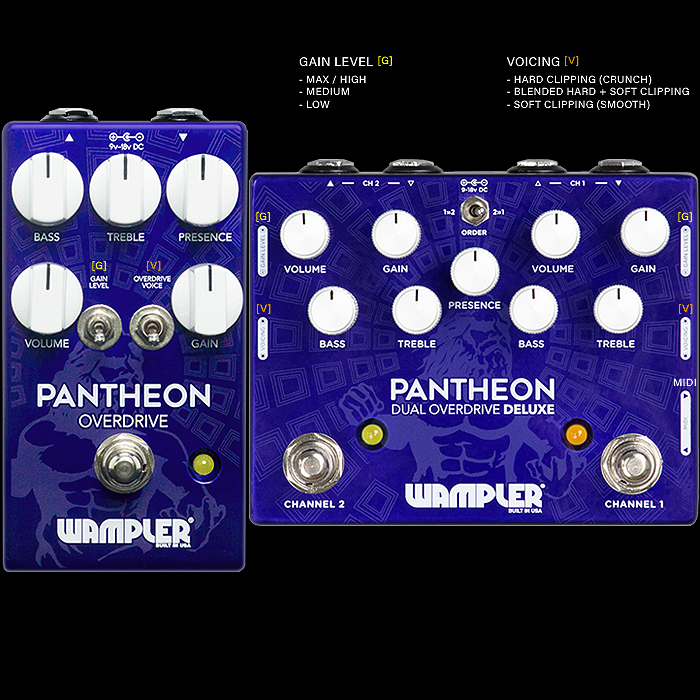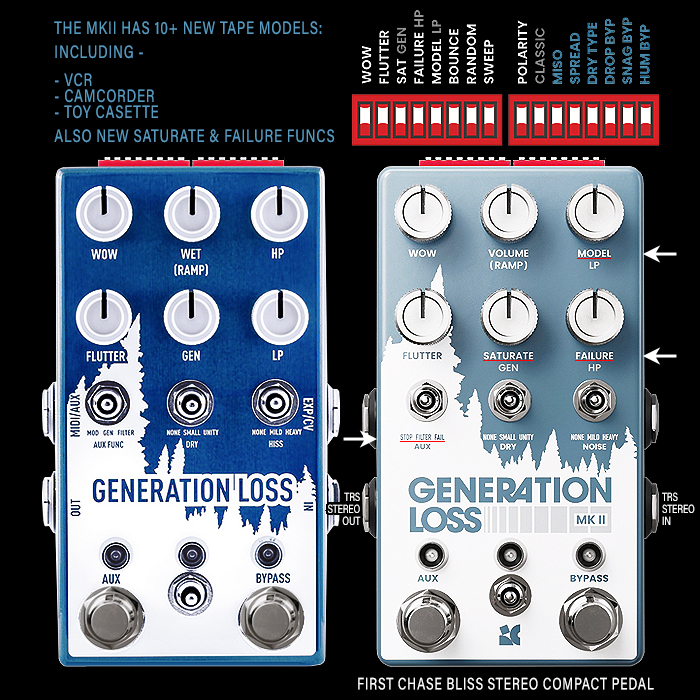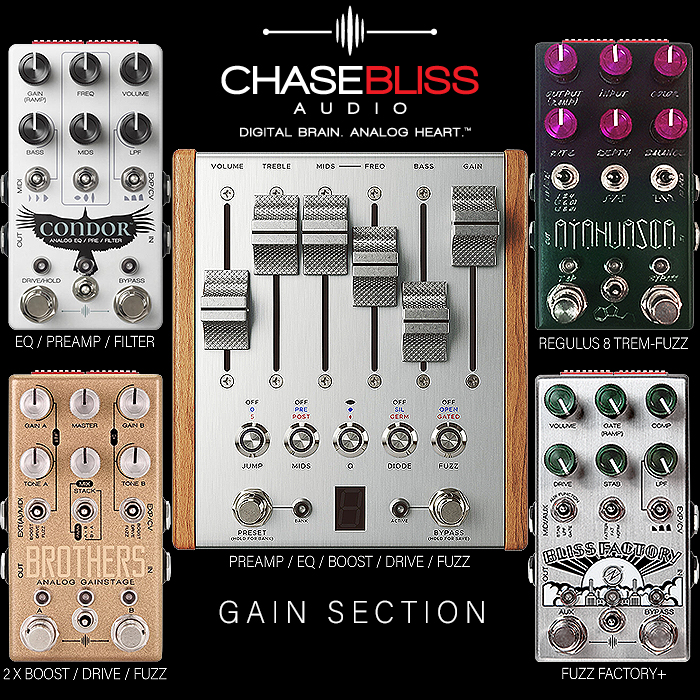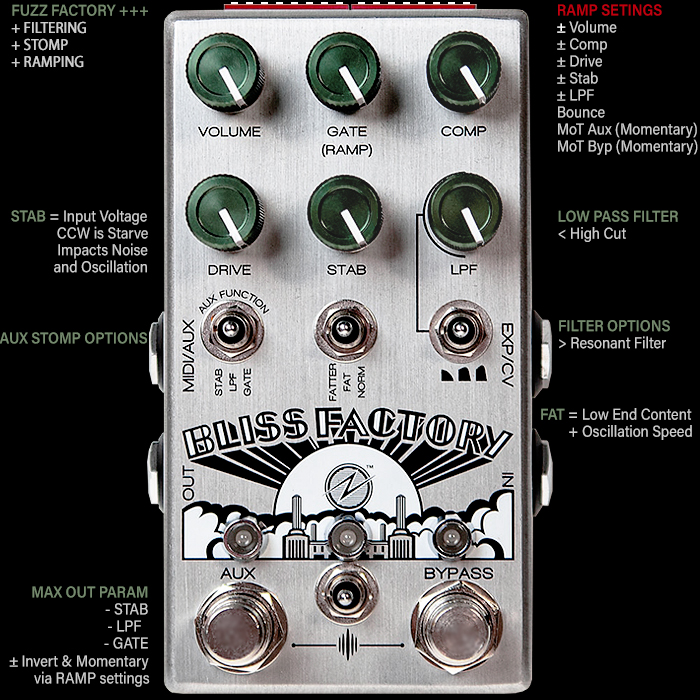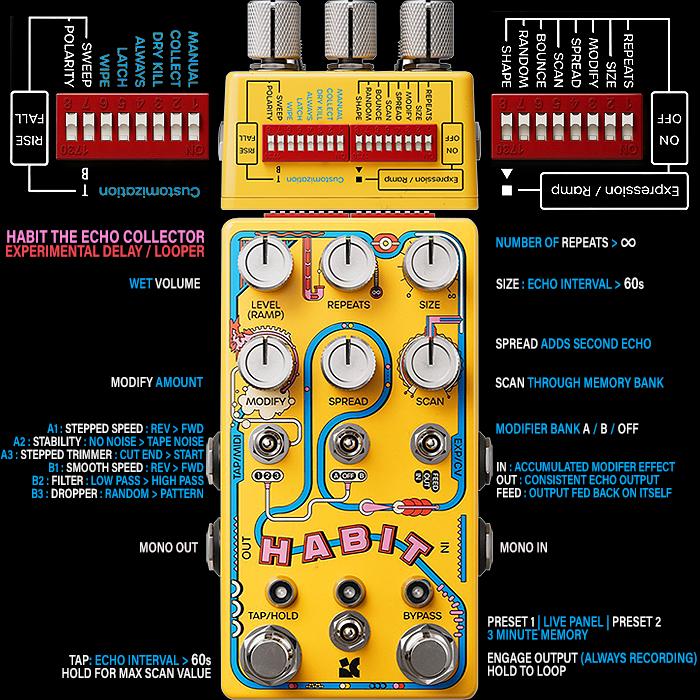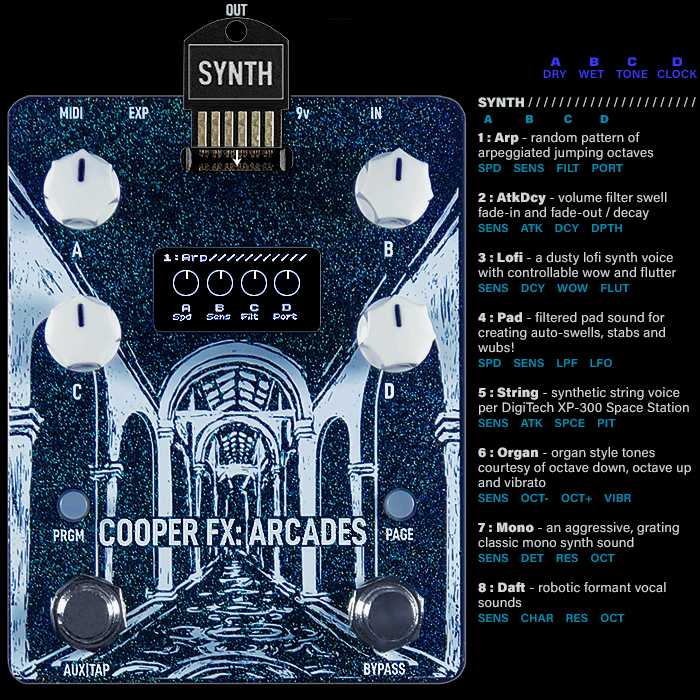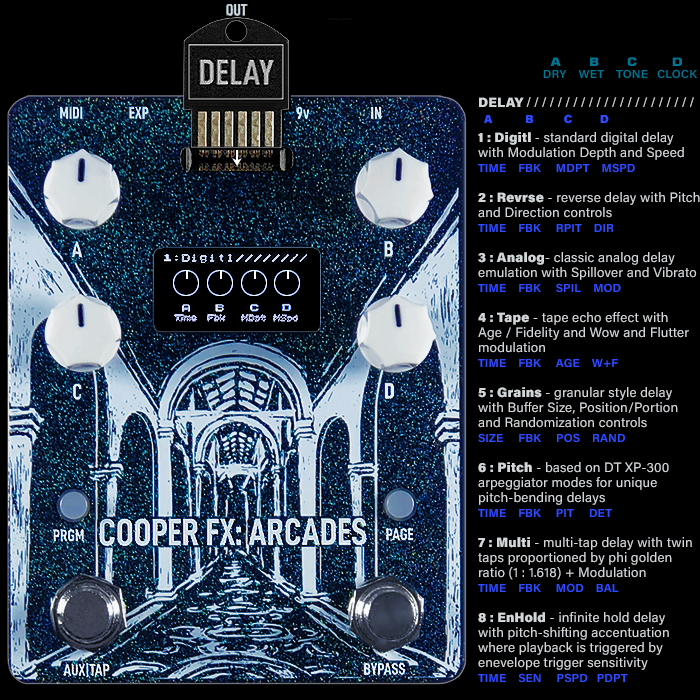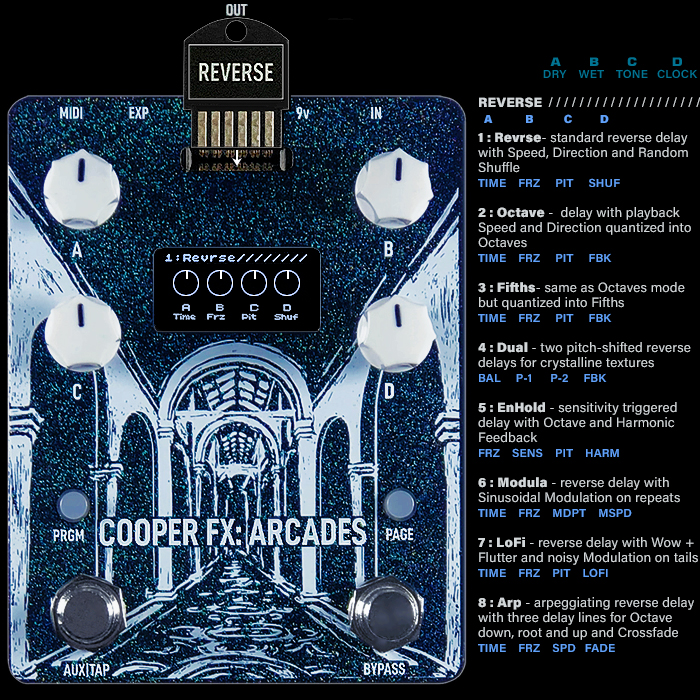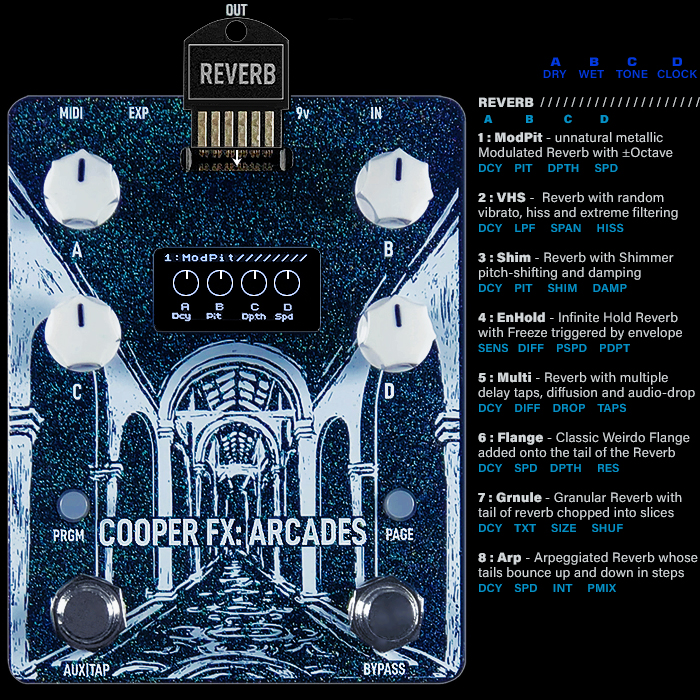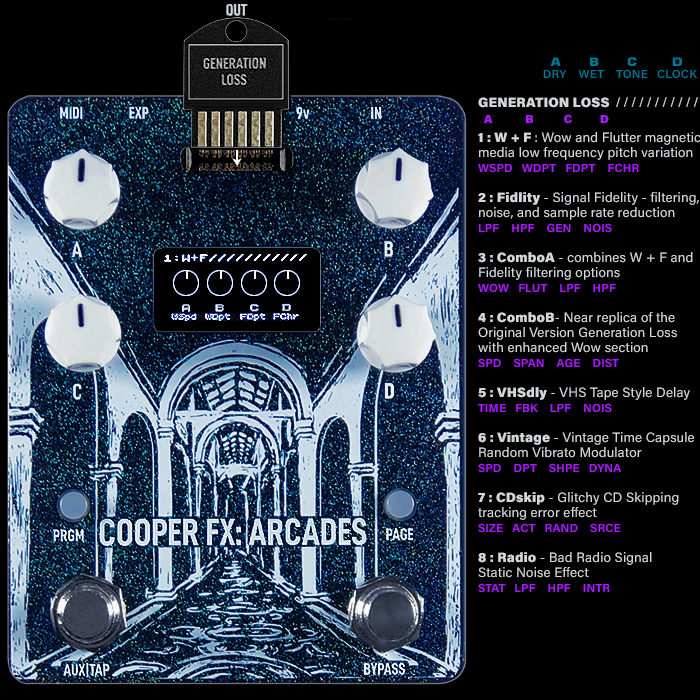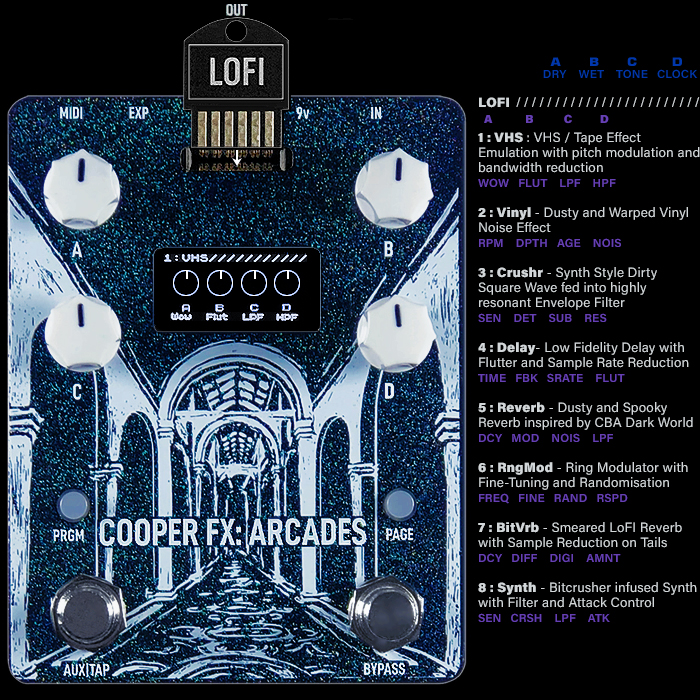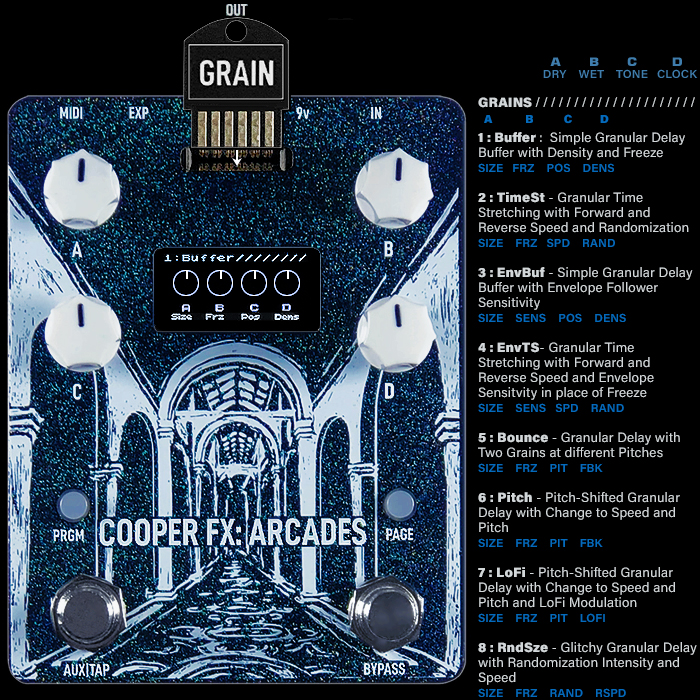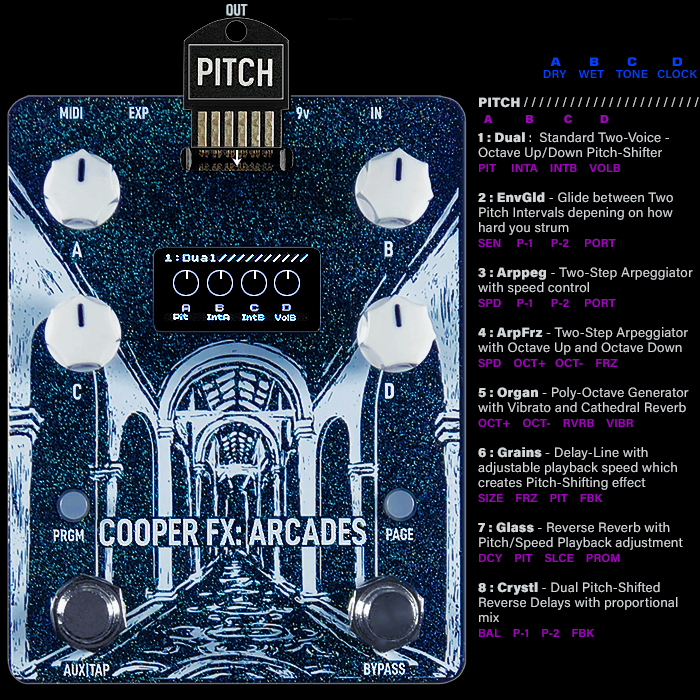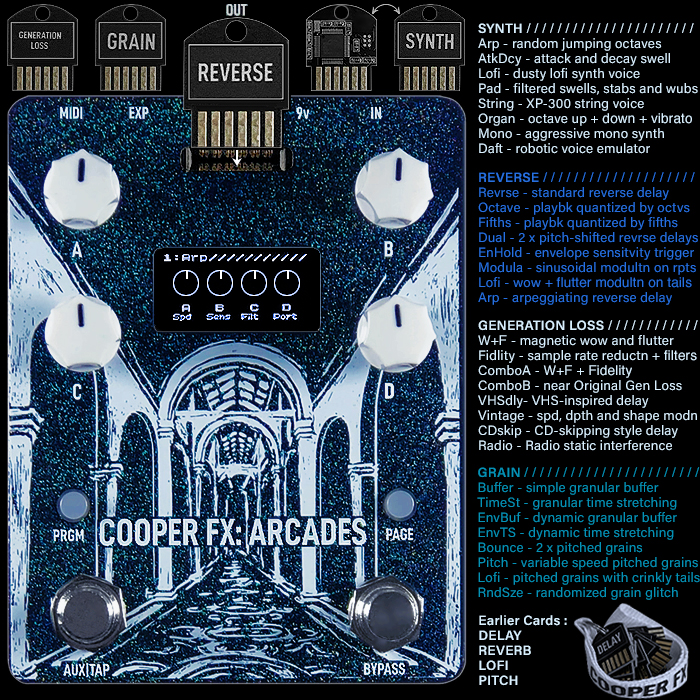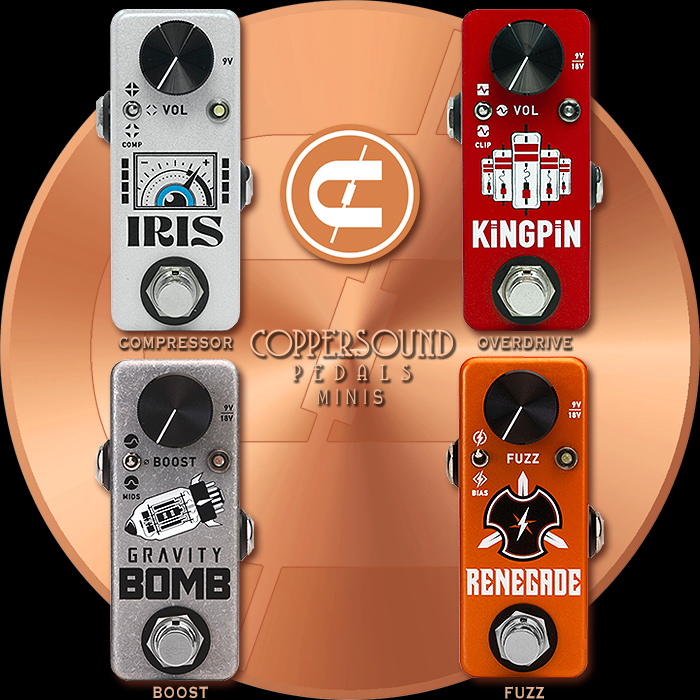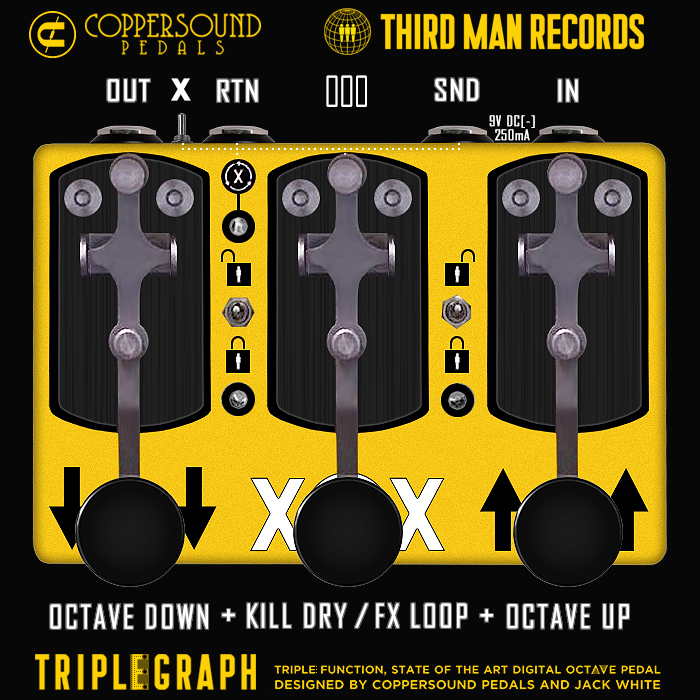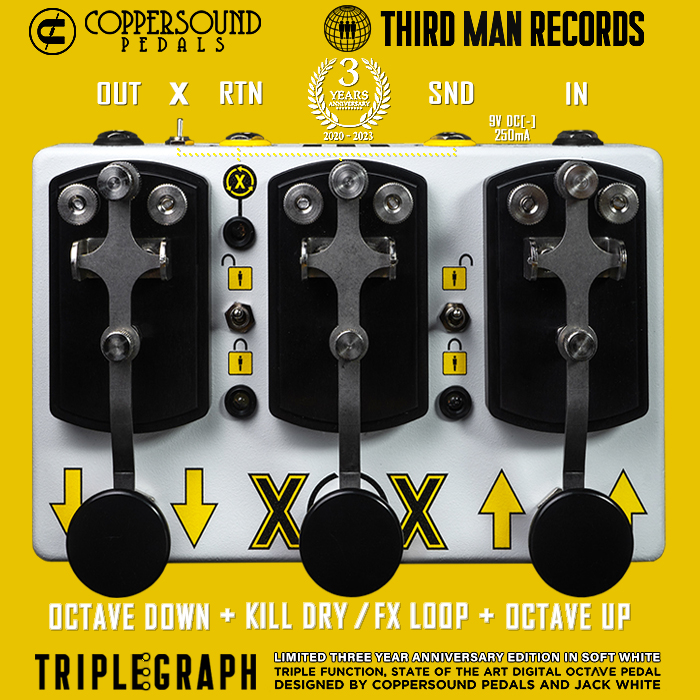2020 Best of the Best New Guitar Pedals of the Year
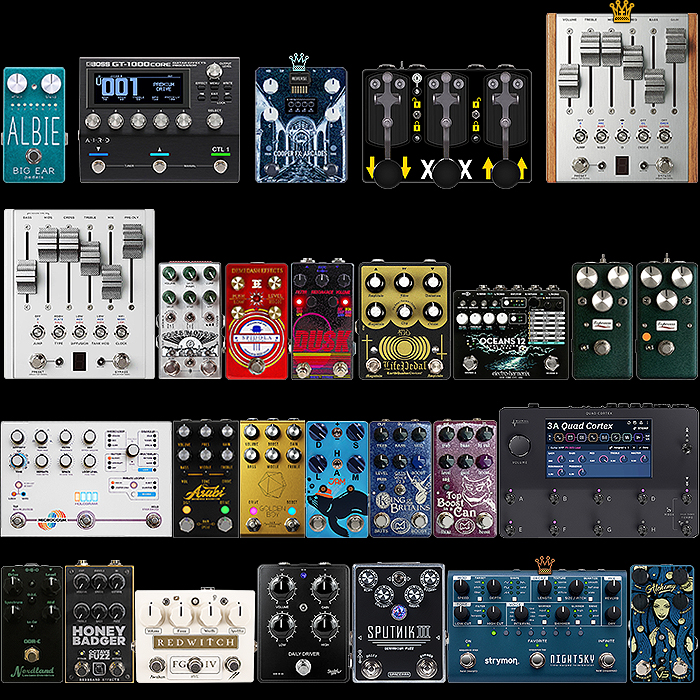
So I’ve now completed 5 preliminary shortlists type articles featuring between 9 and 30 or so of the best pedals released in 2020 - in each of the following categories :
- Best New Reverb Workstation Pedals (9)
- Best New Overdrive and Distortion Pedals (29)
- Best New Fuzz Pedals (31)
- Best New Delay and Reverb Pedals (20)
- Best New Modulation, Pitch, and Utility Pedals (28)
I sincerely apologise if I’ve overlooked any here, while I’m not sure they would have necessarily influenced the final standing - but do let me know if you feel I missed out something significant.
Each year for a while now - I’ve traditionally posted a ’Best of’ sort of ’Top 25 Overall’ New Release Pedals for the year - and that is what this article is. There were just so many great pedals rebased this year that I felt it essential to have as wide a scope as possible - to adequately showcase all those pedals - meaning I did all those category overviews too - as listed above.
Some of the final decisions can end up being a little over-personal and seemingly arbitrary - so I felt I should first show the larger selection - before I focused in on the outstanding 25 or so. You can’t track everything, and there will for sure be one or two omissions - which I apologise for most sincerely. Do note also that this is an entirely neutral listing as such from my perspective - and I deliberately include as wide a selection as possible. I rarely get sent press releases or notifications of new pedal launches - I’m compelled to pick up on all these events myself - which can be somewhat fraught with challenges. Getting information out of pedal builders is often your proverbial blood from a stone - every fact nugget revealed has to be chased down and pursued individually - and there are several quests that never amount to anything owing to lack of response.
On this occasion I’ve actually been able to accommodate a couple of extras - which I didn’t feel adequately fitted into any of the previous categories, but still deserved a shout out here as such.
As I’ve only just completed those very significant overviews - I don’t think we need to regurgitate all the same details again - and so will concentrate only on the Top 3 Overall Winners - which I assign as Gold, Silver and Bronze, and I will also touch on those couple of extras not featured in the previous selections.
THE TOP 3
- Gold : Chase Bliss Audio with Benson Amps Automatone Preamp MKII
- Silver : Cooper FX Arcades Modular Multi-FX Workstation
- Bronze : Strymon NightSky Time-Warped Reverberator
The Final 27
- Big Ear Pedals Albie Multi-FX 80's Ambient Modulator
- Boss GT-1000 CORE Guitar Effects Processor
- Cooper FX Arcades Modular Multi-FX - SILVER
- Coppersound Pedals + Jack White Third Man Records Triplegraph Triple-Function Dual Octave, Kill-Switch and FX Loop Engage
- Chase Bliss Audio with Benson Amps Automatone Preamp MKII - GOLD
- Chase Bliss Audio with Meris Automatone CXM 1978 Studio Reverb
- Chase Bliss Audio with Zvex Bliss Factory Modulated Germanium Fuzz
- Demedash Effects Spidola Germanium Fuzz Device
- Dr Scientist Dusk Dynamic Filter
- EarthQuaker Devices Sunn O))) Live Pedal V2 Fuzzstortion + Boost + Octave
- Electro-Harmonix Oceans 12 Dual Channel Reverb
- Expresso FX Custom Germanium/Silicon Switching FF Fuzz
- Expresso FX Custom Germanium/Silicon Switching TB MKII Fuzz
- Hologram Electronics Microcosm Granular Synthesis Multi-FX
- Jackson Audio Mateus Asato Signature Asabi / El Guapo Overdrive + Distortion
- Jackson Audio Joey Landreth Signature Golden Boy Overdrive + Boost
- JAM Pedals with That Pedal Show Harmonious Monk Harmonic Tremolo
- Menatone Compact Vertical King of The Britains Plexi-Drive + Boost
- Menatone Compact Vertical Top Boost in a Can / Vox Style Distortion + Boost
- Neural DSP Quad Cortex Digital Amp and Effects Modeller (Not to size ratio!)
- Nordland Electronics ODR-C Custom Overdrive
- Redbeard Effects Honey Badger Dual Sub-Octave Fuzz
- Red Witch Fuzz God IV Silicon Fuzz + Octave + Oscillation
- Shnobel Tone Daily Driver All-rounder Overdrive
- Spaceman Effects Sputnik III Germanium Fuzz
- Strymon NightSky Time-Warped Reverberator - BRONZE
- VS Audio Alchemy Analog BBD Chorus with Presets
The Big Winner : Chase Bliss Audio with Benson Amps Automatone Preamp MKII
The hype here is fully justified and this much lauded pedal is the very best thing released in 2020.
It's not just its enormous variety of possible tones - including every Overdrive tone imaginable, and a remarkable Fuzz Face style Fuzz onboard too.
Nor is it the ever-so visual magic gliding sliders or Midi control possibilities.
It's really the overall elagant intuitive usability here - which pretty much totally negates the need for a manual - everything works totally logically and succinctly here. And the ability to save and recall presets on the fly in such an elegant manner is surely a benchmark for all.
If you only ever get one Overdrive pedal - then this should surely be that choice!
The Big Runner-Up : Cooper FX Arcades Modular Multi-FX
The magic here is similar to the above Preamp MKII - in that it's the overall form factor and experience that is so innovative.
I have a long history with trying to get the best out of Glitch-style Multi-FX pedals and over the years I've noted down all the issues I have had with those - lack of intuitive interface, lack of presets, lack of consistency etc..
With the typical pedal of this type you are compelled to frequently resort to the manual as every knob has half a dozen different functions depending on the algorithm selected - and even when there are similarities in algorithms all the knobs will tend to sit in totally different positions - so there is no flow-through or intuitiveness typically and those types of effects are therefore rather difficult to use generally. Particularly with regard to replicating already established preferred settings.
Enter the Cooper FX Arcades then - which not only solves all those essential challenges, but introduces a wholly future-proof and infinitely updatable and expandable system - via its smart modular cards.
Not every algorithm is necessarily killer yet, but there is more than enough greatness already to get excited about - and the pattern is set for a number of new cards to be introduced every year - so this is a fairly future-proof pedal as far as that goes.
It's genuinely innovative and truly impressive in how consistently good it is - and that vertical BB-size format is just perfect for my needs. For me it's main competitor is the much larger Hologram Microcosm which doesn't really have any of the key innovations inherent to the Arcades, however impressive it is too.
The Other Big Runner-Up : Strymon NightSky Time-Warped Reverberator
There's been a lot of hype around Reverb Workstations this year - with most of the attention centred on the Chase Bliss Audio / Meris Automatone CXM 1978 Studio Reverb and this Strymon NightSky Time-Warped Reverberator.
And while I conceded that the CXM 1978 is indeed the most pristine sounding Reverb pedal I have encountered, it's the Strymon that is still the more impressive and innovative - with lots more sonic potential onboard.
Strymon has in effect rebooted the Reverb pedal as a sort of modular component tool - where you build up your own preferred style and timbre of Reverb from a number of smart component sections. Where you can still get elegant and pristine tones - by simply just dialling out those other modules - while you can also get the most extraordinary complex Reverb tones - and something totally specific to your own preferences. So the CXM 1978 is more of a limited configurable Reverb, while the NightSky is a sort of open plan 'Build Your Own Reverb'.
That's not to say that many people won't prefer what the CXM delivers - which is indeed largely based on the earlier stellar studio special - Lexicon 224 Digital Reverb.
I really like both these immense reverb workstations and while I feel that the NightSky will be my principal choice, I will still be getting the CXM 1978 sometime in 2021 - for occasional and alternative pedal-chain rotational duties.

Boss GT-1000 CORE Guitar Effects Processor - $699/£599
I feel the new Boss GT-1000 CORE also deserves a mention - and as a fully fledged amp modeller and digital effects processor, it didn't readily fit into any of the preliminary categories.
During this year the CORE came to step into my pedal-chain in place of the still formidable GFI Synesthesia - and mostly in the role of a Digital Multi-Modulation Workstation - while of course it provides a whole lot more.
First off I should really mention just few minor disappointments I have with the pedal - unlike its bigger sibling The CORE does not sport BlueTooth connectivity which I believe should really be default for such complex pedals, and which will undoubtedly have numerous firmware updates in the future. Secondly there is no dry-signal bypass - meaning that with nothing selected the signal flow still gets transitioned into and out of DSP processing. And thirdly there is no proper standby mode - meaning for my purposes I needed one of the patches to be an essentially 'empty' standby preset - which I need to switch to when I don't wish the CORE to be engaged.
The actual control-side and signal-flow flow chart and topology actually takes a while to get your head around - while if you seek it out - you will typically find the setting you are looking for - although they don't always sit in the most obvious or logical places.
Overall though the CORE is a real powerhouse of a Multi-FX pedal - and has the highest degree of fidelity and allows you to chain together as many as 24 simultaneous effects - which is far more than the competition.
When first introduced into my signal chain it had the effect of somewhat sharpening / crunching up my core tone - because of the DSP element - yet applying Global EQ High Frequency Cut-off Filter smoothed it back to normal tolerances again - one of the things that it's good to know about.
There is certainly a learning path here, while there are also near infinite possibilities. Moreover this is an early generation device - which will only get better. I'm obviously a Boss fan and have an innate and intimate experience with all those Boss effects - I know how to tune them and make best use out of them for instance - which is why this device is preferred by my over the Helix HX Stomp - which currently has a lot more individual voicings. The Boss GT-1000 pedals are still in relevant infancy - and those will get better and see more effects, amp models etc. added over time.
I obviously like the Boss GT-1000 CORE well enough to give it a permanent spot in my pedal-chain.
I will be doing a more in-depth analysis of the pedal early next year. While I'm having to produce a number of my own references here for some of the key signal flow points. Some of the support materials could definitely do with improvements and additions.
Neural DSP Quad Cortex Digital Amp and Effects Modeller - $1,599/£1,449
While I'm not the biggest advocate necessarily of the all-in-one floorboard pedals - a la Axe-FX, Helix and this Quad Cortex, I nevertheless recognise innovation and engineering prowess, and if I were going to go down this route - then this would certainly be my first choice candidate.
As with many of these - it's a confluence of different things - I'm not going to get weighed down by debates on the relative fidelity and authenticity of each algorithm and each model component, but rathe concentrate on the whole here - and the overall experience the device delivers.
I've already done a couple of features on the Quad Cortex - firstly just focusing on its Rotary Actuator footswitches - which double as control knobs too - that is next level innovation.
Then you have the really smart interplay between the screen and those RotoStomp Actuator Footswitches - and actually the overall intuitiveness of the touch-screen - which seems to be just the right size, and has just the right sensitivity and reactivity to near enough always deliver exactly what you want.
We then have the unique 'Neural DSP' way in how those tone dynamics are rendered with really smart low-latency touch-sensitivity and feel in playback.
And if that was not all sufficient - we have a pretty relatively compact unit for all it delivers - and probably as small as it could be to accommodate all those Rotary Actuator Footswitches. The final cherries on top is that everything is BlueTooth accessible, and you can easily share your own algorithms across the network - such that your friends and associates can access them, and you too have the ability to download and upload from the cloud wherever you may be performing.
The word 'revolutionary' gets bandied about quite a lot, but it definitely applies here - this is for sure the next benchmark execution for this category fo Multi-FX Processor Pedal - just immense - and with a suitable immense price tag to boot.
With these sorts of technologies it doesn't always make the best sense to buy into the first edition - as there will be a number of firmware updates and possible even some necessary circuit updates to make the pedal totally perfect. Latter editions are usually a little more robust, and often benefit from a slight lowering in price too - so I will wait it out until both of us are fully ready to connect!
Final Thoughts
I'm pretty sure this will trigger some healthy debate - and for sure there are subject reasons here for choosing one pedal over another. Based on the criteria of feature set, innovation, practicality, quality of output and overall user experience - that I've got this about right.
All fo those pedals featured I believe are amongst the best in class for those categories - by all means reach out of you feel you have a point to make. No two people will list out the same favourites - and you will likely have a couple of others of your own liking that you felt to be more meritorious - by all means get involved in the discussion and I can offer further rationale on my own position here.
Of these 27 pedals I have 23 - well 22 and a half really for El Guapo vs Asabi. The 4 I don't own any versions of yer are the CopperSound Triplegraph - which I'm looking to sort out early next year; the Chase Bliss Audio Automatone CXM 1978 - which I will likely tackle later in 2021; the Hologram Electronics Microcosm - which I love but is a little too large for my needs; and the Neural DSP Quad Cortex which I've just revealed I will not likely be getting in initial iteration - I will rather wait for that format/plarform to settle down and mature a little.
My eventual Quad Cortex - likely at least a couple or so years in the future will be something of a sideline for me - as I'm still largely focused on and dedicated to more individual stomp box pedals - and particularly of analog nature or analog signal path and tone generation + digital control and manipulation.
I feel it's been a pretty spectacular year all considered. Remaining articles for the year are the final pedal-chain status for the year, and the Christmas and New Year Message!
I hope you have enjoyed the odyssey this year.

